AESA PROGRAMMES
- Building R&D Infrastructure
- Developing Excellence in Leadership, Training and Science in Africa (DELTAS Africa)
- Human Heredity and Health in Africa (H3Africa)
- Africa’s Scientific Priorities (ASP)
- Innovation & Entrepreneurship
- Grand Challenges Africa
- Grand Challenges Innovation Network
- Rising Research Leaders/Post-Docs
- AESA RISE Postdoctoral Fellowship Programme
- African Postdoctoral Training Initiative (APTI)
- Climate Impact Research Capacity and Leadership Enhancement (CIRCLE)
- Climate Research for Development (CR4D)
- Future Leaders – African Independent Research (FLAIR)
- Critical Gaps In Science
- Clinical Trials Community (CTC)
- Community & Public Engagement
- Mobility Schemes: Africa-India Mobility Fund
- Mobility Schemes: Science and Language Mobility Scheme Africa
- Research Management Programme in Africa (ReMPro Africa)
- Science Communication/Africa Science Desk (ASD)
- Financial Governance: Global Grant Community (GGC)
- AAS Open Research
- CARI Programmes
- Evidence Leaders Africa (ELA)
The Climate Impact Research Capacity and Leadership Enhancement (CIRCLE)
The Climate Impact Research Capacity and Leadership Enhancement (CIRCLE) is a programme to develop the skills and research results for early career African researchers in the field of climate change.
Launched in 2014, The UK Department for International Development has provided £ 4.85 million for this programme.
Scope
The African Academy of Sciences’ AESA and the Association of Commonwealth Universities (ACU) are providing a total of 100 scholarships to 40 postmasters and 60 postdoctoral researchers in Africa in three cohorts to study the impact of climate change over a period of five years.
The AAS and the ACU selected the first group of CIRLCE Visiting Fellows (CVF) in 2015 and the second in 2016. A third cohort will be announced in 2017.
The CIRCLE Visiting Fellows will spend a year in another university or research organisation in Africa studying the impact of climate change in five thematic areas.
- Agriculture
- Energy
- Health and livelihoods
- Water
- Policy
- The programme also collaborates with African universities and research institutions to strengthen their research ecosystems.
- To date, 63 Fellowships awarded
- Fellowships have facilitated 14 publications by CIRCLE Visiting Fellows
- 30 review articles, blog posts, conference proceedings, book chapters and articles in peer reviewed journals published from CIRCLE funded research
- Eighty percent of Fellows have presented their CIRCLE funded research at international conferences across the globe
- CIRCLE’s goal is to achieve a 50:50 ratio of Fellowships for men and women; to date women have received 48% of the Fellowships
Meet the Team
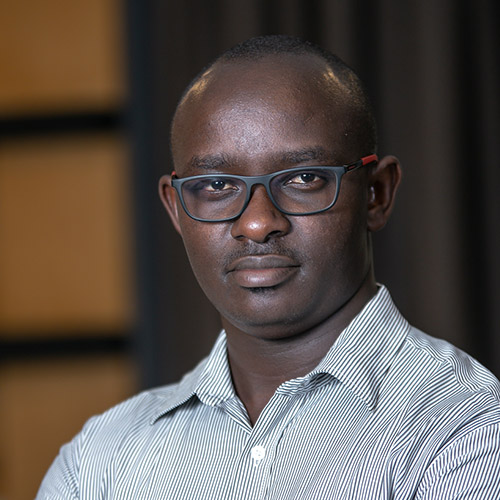
The CIRCLE Visiting Fellows will spend a year in another university or research organisation in Africa studying the impact of climate change in five thematic areas.
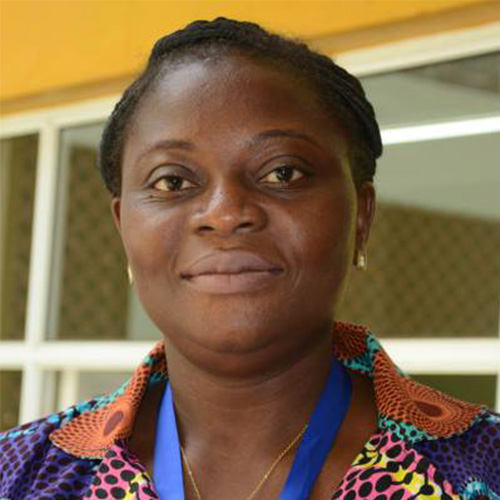 Ms Akuffobea Mavis
Ms Akuffobea Mavis Ghana
Cohort 3
Areas of research interest: Climate Variability, Green Technologies and Environmental Conservation, Innovation Studies and Small and Medium Enterprises Development
Home Institution Science and Technology Policy Research Institute (CSIR-STEPRI), Ghana.
Host Institution University of Dar Es Salaam (UDMS), Tanzania
Summary of research
The negative effects of climate variability affect lives and livelihoods of the various social groups differently due to gender inequality caused by social roles and responsibilities, social status, economic power, and access to and control over resources. This study assesses the gendered impacts of climate change on livelihoods of people living in protected areas in Ghana. It aims to understand how the various gender groups are differently impacted by climate variability, the adaptation strategies they employ and their capacities from a gender perspective in terms of opportunities and challenges to better adapt to climate variability.
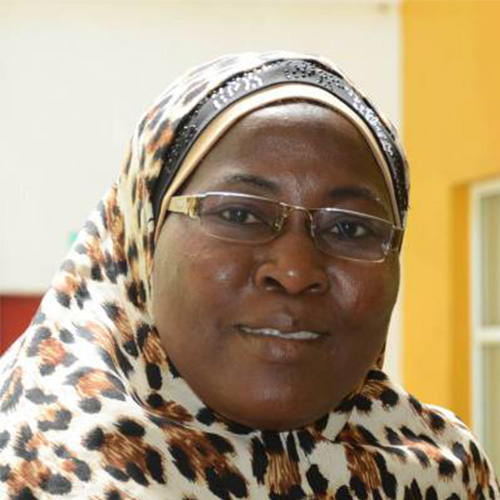 Dr Ayinde, Adefunke Fadilat Olawunmi
Dr Ayinde, Adefunke Fadilat Olawunmi Nigeria
Cohort 3
Areas of research interest: Farmers’ Perception on Climate Variation; Climate Variation Adaptation Strategies; Arable Crops (Cassava-based Farms);
Home Institution Federal University Of Agriculture, Abeokuta
Host Institution University of Cape Town, South Africa
Summary of research
This research is aimed at examining cassava farmers’ perception level, causes and effects of climate variability in the rainforest and derived savannah ecosystems of Nigeria, adaptation strategies put in place by the small scale farmers and the government as well as examination of influence of women and youth (successor generation of farmers) in decision making on adaptation to climate variability. The study will also focus on farmers’ livelihood changes occasioned by climate variability among others.
 Dr (Mrs) Badu Mercy
Dr (Mrs) Badu Mercy Ghana
Cohort 3
Areas of research interest: Natural products chemistry
Home Institution Kwame Nkrumah University of Science and Technology, Ghana
Host Institution Obafemi Awolowo University, Nigeria
Summary of research
Oilseeds and nuts have been reported in recent times as the leading supplier of superior quality and specialty vegetable oils as a result of their nutritional and medicinal properties. They have high oil content, which ranges from 20-70 % of the total weight of the seed.
This project seeks to take inventory of the different species of drought-resistant oilseed bearing plants found in the northern savannah zone of Ghana and Nigeria. These plants consistently grow under high drought conditions within the savannah zone. The plants have adapted to the harsh climatic conditions and may withstand the worse scenarios of rising temperatures due to climatic changes. Hence they can support food security and malnutrition in this era of climate change.
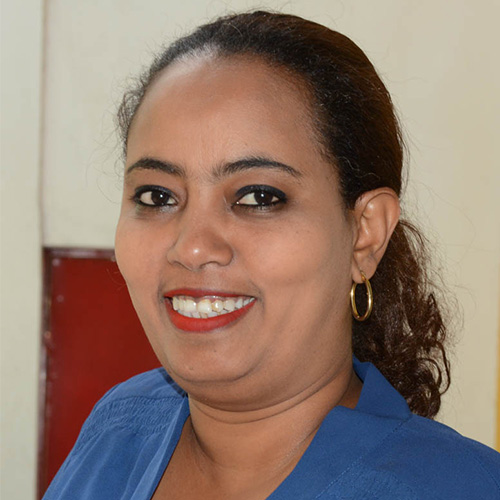 Dr Fana Hagos Berhane
Dr Fana Hagos Berhane Ethiopia
Cohort 3
Areas of research interest: Climate Change Laws and Policy, Gender
Home Institution Mekelle University , Ethiopia
Host Institution Addis Ababa University, Ethiopia
Summary of research
There are powerful arguments for addressing gender issues in the policy areas, both to prevent climate change from exacerbating existing gender inequalities and to make sure that public policy on both curbing and adapting to climate change is as effective as possible. In spite of this, however, there is a lack of research and paucity of hard evidence that cast light on the linkage between gender and climate change, and the intersection of gender and climate change with the laws and policies especially in the context of the least developed countries like Ethiopia. There are ranges of climate change-related laws, policies and programmes in Ethiopia, however, the extent of to which these laws and policies take gender into consideration is yet to be investigated. Hence, the objective of this postdoctoral research project is contributing to the growing body of literature on Gender and Climate change by providing an analysis on the extent to which
gender differences are taken into account in the development of policies and laws on climate change mitigation and adaptation in Ethiopia and to investigates the opportunities, challenges and progress made toward mainstreaming gender into all climate-change protection systems in the country.
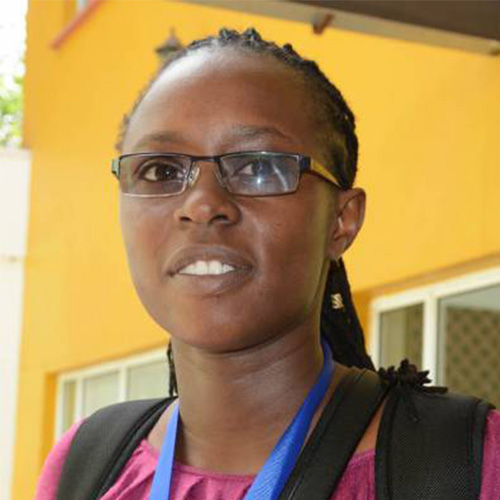 Dr Bosire, Caroline
Dr Bosire, Caroline Kenya
Cohort 3
Areas of research interest:Ecology, Agriculture, Natural resource management, climate adaptation.
Home Institution International Livestock Research Institute, Kenya.
Host Institution University of Fort Hare, South Africa.
Summary of research
In many areas, freshwater and land limitations are already restricting agricultural production. Competition for these resources will increase in the future. As the availability and the usage of these resources decrease due to climate change conditions (Herrero et al. 2010), the demand for natural resources will increase as a result of agricultural development. Particularly, for smallholder farmers, it is important for them to adapt to a changed climatic environment. If they fail to do so, they will find it hard to produce the quantity of food demanded by the rising urban population. I expect that my research will influence policy in climate change adaptation by providing the biophysical constraints associated with farmers’ adaptations. This will provide tangible evidence of the pros and cons of policies towards farmer adaptation on natural resource demand.
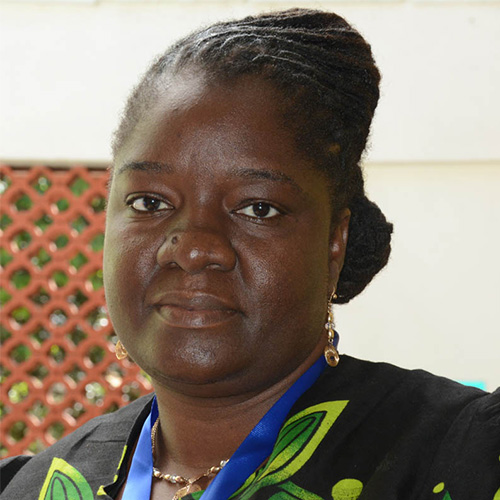 Ms Chinokwetu Varaidzo
Ms Chinokwetu Varaidzo Zimbabwe
Cohort 3
Areas of research interest: Climate Change Adaptation, Environmental Sustainability, Policy and Livelihoods
Home Institution Chinhoyi University of Technology, Zimbabwe
Host Institution University of South Africa, South Africa
Summary of research
Climate change poses major threats to vulnerable households and communities relying on rain fed agricultural production, and climate sensitive livelihoods especially in semi-arid tropics. An understanding of how these communities perceive and manage climate-related shocks and stressors is needed in order to improve the designing and/or implementation of appropriate and effective support systems. It has been acknowledged that effective policies for sustainable climate change adaptation and food security can only be made if the adaptation processes of farmers at the local level are taken into consideration. Perceptions of climate change are translated into the livelihoods decision-making processes. The households live within varied social and economic factors that influence the immediate adaptation options. An interrogation of the adaptation environment of the farmers will point to what matters to them and ways can be explored to strengthen the adaptation strategies and the creation of a conducive adaptation environment.mate change.
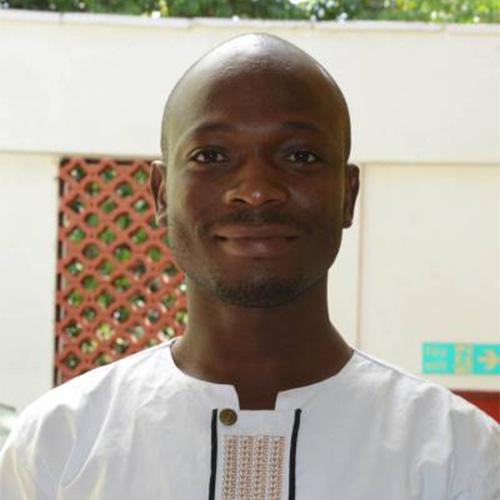 Mr Dandeebo Gordon
Mr Dandeebo Gordon Tanzania
Cohort 3
Areas of research interest: Health Systems Development, Maternal and Child Health, Community Participation in Health, Partnerships in Health, Climate Change and Community Health
Home Institution University for Development Studies, Tamale - Ghana
Host Institution Muhimbili University of Health and Allied Sciences, Dar es Salaam – Tanzania
Summary of research
This study seeks to explore the plausibility of using community-based health structures in managing the health risks of climate variability through effective public health and healthcare strategies. If existing community-based health structures were developed and strengthened they could play an effective role in building the adaptive capacity of vulnerable rural communities to the impact of climate variability. It is, therefore, worthwhile to investigate the strategies and the methods that are used, and can be used, to integrate community health structures so that they correspond to the skills for future surveillance activities and retrospective data sets with respect to climate change.
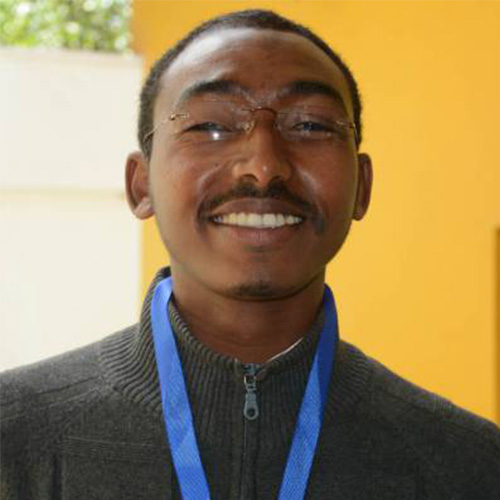 Emiru Nega Chalie
Emiru Nega Chalie Ethiopia
Cohort 3
Areas of research interest: Water and climate
Home Institution Hawassa University, EthiopiaHawassa University, Ethiopia
Host Institution University of Fort Hare, South Africa
Summary of research
The dependence of Ethiopia's economy on agriculture combined with the rain-fed nature of the country’s farming system makes it particularly vulnerable to the climate variability and change. The erratic nature of rainfall often results in crops failure. Changes in precipitation, temperature and hence evapotranspiration will affect crop water demand and irrigation water needs. In contrast, predicted increase in river flow in some months of the year is likely to cause floods. Overflowing of channels of both minor and major rivers and an abnormal rise in lake levels may flood agricultural fields and human settlements.In order to manage and mitigate against the impacts of climate change and variability, detailed studies of the changes and the resulting effects are necessary. This will help policies makers develop appropriate water resource policies that consider future climate change and ensure sustainable utilization of the resource. In this regard, my research will have its own contribution for policy makers.
 Dr Ewusi-Mensah, Nana
Dr Ewusi-Mensah, Nana Ghana
Cohort 3
Areas of research interest: Soil health and plant nutrition. Legume adaptation to climate change. Enhancing legume production in agricultural systems by promoting microbial activity in biological nitrogen fixation, mycorrhiza and organic matter decomposition. Rhizobium ecology.
Home Institution Kwame Nkrumah University of Science and Technology, Ghana
Host Institution University of Cape Town, South Africa
Summary of research
Global concerns now necessitate the search for soil management practices that can be used to achieve food security and at the same time contribute to global climate change mitigation and adaptation.Biochar is a promising technology which has been reported to positively mitigate global warming and an array of soil processes. However, very little biochar is still utilized in Ghana as soil amendment mainly because of low N quality,
short and long term benefits which are not extensively quantified and poor understanding of mechanisms by which soil health is improved. Thus, a deeper understanding is needed to elucidate mechanisms underlying the use of enhanced N biochar on soil health and its suitability under various soil types and climatic conditions.
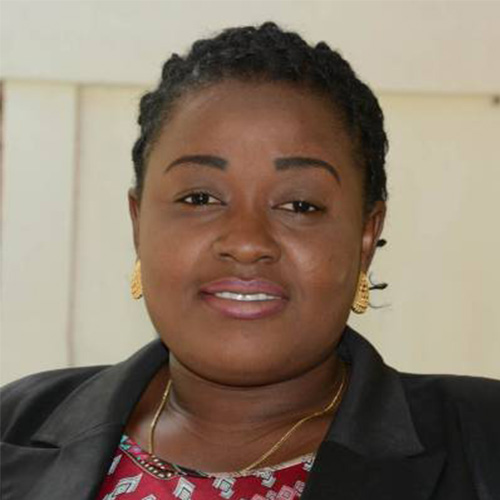 Lilian I. Ezenwa
Lilian I. Ezenwa Nigeria
Cohort 3
Areas of research interest: Climate Change, Pollution control, Environmental (Soil & Plants) Conservation
Home Institution Michael Okpara University of Agriculture, Umudike, Abia State. Nigeria.
Host Institution Moi University, Kenya
Summary of research:
Recently, (Feb. 2017) Kenyan government declared drought a national disaster, as this has affected almost 23 counties out of 43 counties in Kenya. Drought which has been known to be shortage in precipitation over an extended period, usually a season or more, resulting in water shortage causing adverse impacts on vegetation, animals, and/or human. However, Baringo County is one of the 23 arid and semi-arid (ASAL) areas in Kenya and is located in the northern part of the country with a population of approximately half a million people. The County is prone to drought as the main disaster and has four livelihood zones namely: pastoralist, agro-pastoralist, irrigated and mixed farming zones. Vegetation cover
in Baringo County has reduced to nearly a third between October and December 2016.
This research is centered on the different ways in which men and women contribute to drought, the different ways they respond to and are able to cope with drought, and the differences on how they are able to move from short-term coping strategies to resilience. Though, women form inexplicably a large share of the poor in developing countries. Women in rural areas in developing countries are highly dependent on local natural resources for their livelihood, because of their obligation to fetch water, secure food and energy for cooking.
 Dr Ezikanyi Dimphna Nneka
Dr Ezikanyi Dimphna Nneka Nigeria
Cohort 3
Areas of research interest: Aeropalynology, Climate change, Immunology
Home Institution Ebonyi State University, Abakaliki, Nigeria
Host Institution Muhimbili University of Health and Allied Science , Tanzania
Summary of research
The research is focused on impact of climate variables on atmospheric pollen and spores. Airborne pollen and spores are major environmental factors that trigger and exacerbate allergenic diseases such as asthma, conjunctivitis/rhinoconjuctivitis, rhinitis/hay fever, dermatitis /eczema, pollinosis etc. Increase in Co2 due to Climate change influences pollen and spores production, distribution and dispersal in atmosphere. The present research will focus on studying the spatial distribution and abundance of airborne pollen and spores across different climatic regions in Nigeria, this is to elucidate how climatic variables impact on airborne pollen and spores in different seasons (wet and dry seasons) in Nigeria.
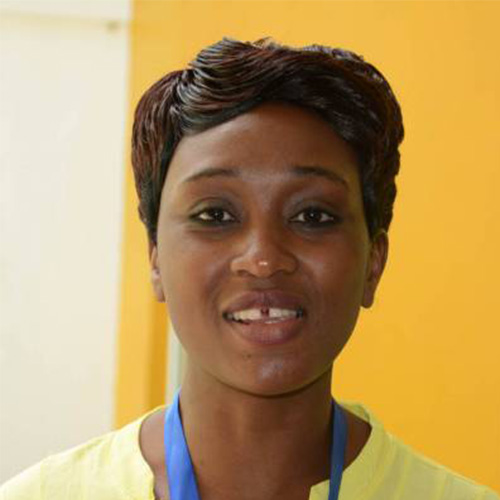 Dr Garutsa Tendayi C.
Dr Garutsa Tendayi C. South Africa
Cohort 3
Areas of research interest:Climate change, Gender, vulnerabilities, Indigenous knowledge, Rural development
Home Institution University of Fort Hare, South Africa
Host Institution Chinhoyi University of Technology, Zimbabwe
Summary of research
Zimbabwe a previously food producing country has been experiencing drastic changes in rainfall patterns, declining by 25 percent. Temperature has increased by 4 degrees Celsius crippling both the livestock and subsistence farming sectors contributing to the national economy (IPCC, 2014). On this note Climate change has produced differentiated and distinct vulnerabilities in rural communities (Carr, 2008; Swai et al., 2012; Sultana, 2013). However, Climate change responses have been overly focused on scientific and economic solutions rather than on significant human and gender dimensions (Skinner, 2011). Treating gender as the primary cause of vulnerability produces a narrow analysis making other social markers (age, types of households, income and ethnicity) analytically invisible (Carr et al., 2014). Against this background this study aims to explore variable vulnerabilities to climate change adaptation within and between genders amongst the Kalanga and Shona ethnic groups in Zimbabwe.
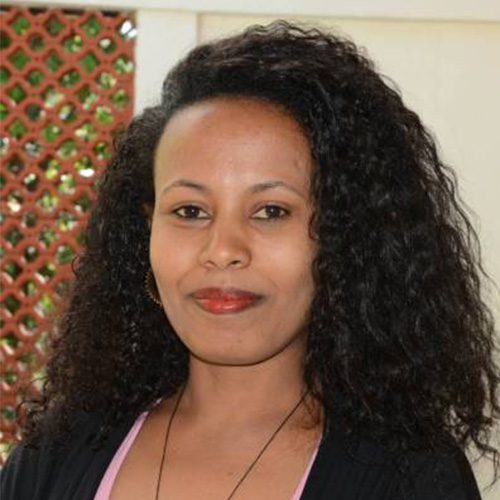 Ms Gebremedhin Tigist Kibru
Ms Gebremedhin Tigist Kibru Ethiopia
Cohort 3
Areas of research interest: Climate change, Forestry, Agroforestry, Carbon sequestration, Biodiversity, Seed Technology
Home Institution Mekelle University, Ethiopia
Host Institution University For Development Studies (UDS), Tamale, Ghana
Summary of research
In 2004, World Vision Australia and World Vision Ethiopia initiated a forestry-based carbon sequestration project as a potential means of stimulating community development while engaging in environmental restoration. An innovative partnership with the World Bank, the Humbo Community based Natural Regeneration Project involved the regeneration of
2,728 hectares of degraded native forests. Following the success of the Humbo project, FMNR spread to the Tigray region of northern Ethiopia where 20,000 hectares have been set aside for regeneration, including 10-hectare FMNR model sites for research and demonstration in each of 34 sub-districts (Rinaudo, 2012). In addition, the Government of Ethiopia has committed to reforest 15 million hectares of degraded land using FMNR as part of a climate change and renewable energy plan to become carbon neutral by 2025 (UNDP, 2012). Even though the FMNR practices spread to Tigray region there is lack of research on FMNR and perception of farmers on climate smart agricultural practices in the area. More over the implication of the research output will be used for policy recommendation on climate change adaptation and mitigation in the study area.
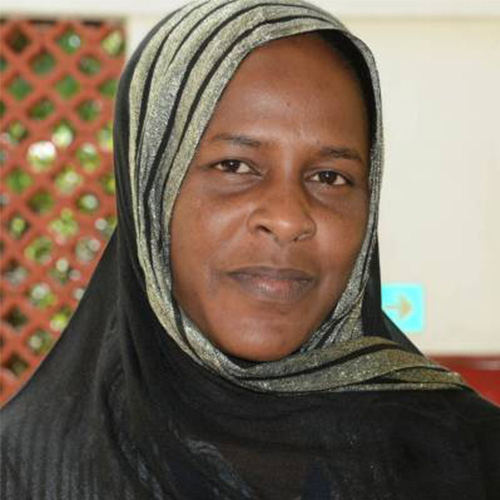 Ms Habib Zobida Habib Omer
Ms Habib Zobida Habib Omer Sudan
Cohort 3
Areas of research interest: Climate Change Adaptation
Home Institution Kordofan University – Sudan
Host Institution University of Dar Es slaam- Tanzania
Summary of research
Studying the socio-economics, adaptation as well as opportunities of further utilization of these new technologies is interest for all stockholders involved in climate smart agriculture including researchers academicians, policy makers, development practitioners as well as farmers
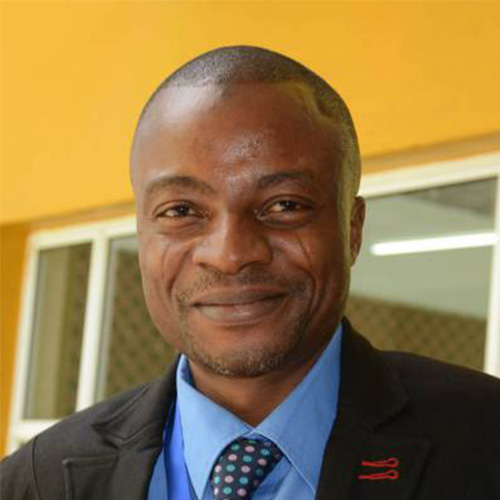 Dr Hammed Taiwo Babatunde
Dr Hammed Taiwo Babatunde Nigeria
Cohort 3
Areas of research interest: Municipal waste management (composting, waste recycling and material recovery from wastes, smokeless charcoal, bio-diesel as well as biogas production and their applications), hazardous waste management and sewage treatment.
Home Institution University of Ibadan, Nigeria
Host Institution University of Nairobi, Kenya
Summary of research
The general aim of this study is to assess litter generation and management process in a community and train members on energy and resource recovery from litters for climate change mitigation and environmental sustainability. This study will adopt a quasi-experimental design, comprising mixed method of data collection such as questionnaire, FGD, IPCC model for calculating greenhouse gas generation potentials of various solid waste components and management practices. It also comprises physical and chemical characterization of litters generated in the study community.
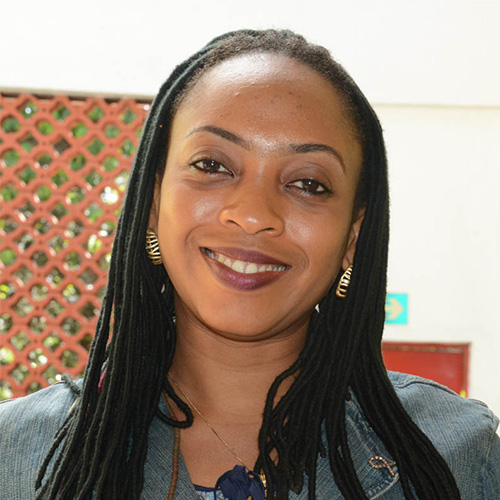 Mrs Ibe, Geraldine Ogechukwu
Mrs Ibe, Geraldine Ogechukwu Nigeria
Cohort 3
Areas of research interest: Study of forest food species in the tropics, savannah and mangrove forests.
Home Institution Michael Okpara University Of Agriculture, Umudike, Abia State, Nigeria
Host Institution University for Development Studies, Ghana
Areas of research interest:
- Study of forest food species in the tropics, savannah and mangrove forests.
- Conservation of Ecological forests.
- Conservation of endangered indigenous edible non timber forest species.
- Nutritional values of forest food species.
- Assessment of exotic forest food species.
- Incorporation of Agriculture and Forestry using high technological methods.
- Propagation methods of endangered indigenous forest food species for conservation and sustainability purposes.
Summary of research
This research work ‘impact of climate change on contribution of non-timber forest food (NTFF) products to the poverty and food security of rural forest farmers in Abia state, Nigeria’, will be of great influence to the policy and/or practice of climate change mitigation efforts in Abia State of Nigeria in particular and in forest ecologies of West Africa more broadly in several ways. The study will identify the key impacts of climate variability on the poverty and food security of rural forest farmers and in the rural economy of target communities in the study.
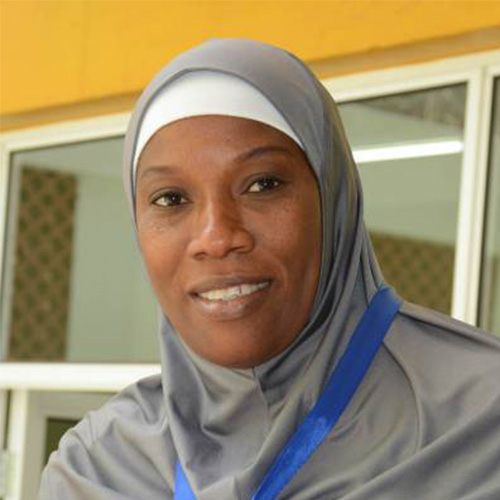 Dr Jubril Afusat Jagun
Dr Jubril Afusat Jagun Nigeria
Cohort 3
Areas of research interest: Environmental toxicology, Veterinary Pathology, Ecotoxicity in fish.
Home Institution University of Ibadan, Nigeria.
Host Institution University of Nairobi, Kenya
Summary of research
Pollution of environment has been a serious global anthropogenic threat to biodiversity and ecosystems, which could impede the adaptation of exposed species to the effects of climate change. A research on the effect of climate change is of optimal importance in understanding the adaptation of species to their natural environment. There would be scientific publications on the level and components of endocrine disrupting chemical pollutants and its associated pathology as well as its effect on adaptation to global warming using Tilapia as a model. One intended outcome of the study is that Tilapia can be used as sentinel species to determine the choice of urban water to be used for fishing and other agricultural practices. Such information would be relevant to public health professionals as well as agriculturist/fish farmers.
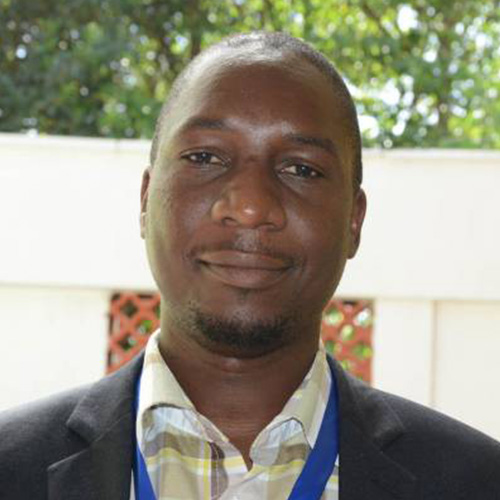 Mr Kaijage, Heribert Robert
Mr Kaijage, Heribert Robert Tanzania
Cohort 3
Areas of research interest: Environmental Health, Climate change Resilience, Mitigation and Adaptation Measures, Disaster Risk Reduction
Home Institution Muhimbili University of Health and Allied Sciences, Tanzania
Host Institution University of Ghana, Ghana
Summary of research
Using the household as a unit of measurement, this study is aiming at constructing a household climate-resilient composite index for health sector. The study will use existing DHS data available from the Tanzania Bureau of Statistics or ordered from the USA Measure Evaluation project and proxy indicators of climate change computed from Remote Sensing (RS) images. While there are several methods for developing composited indices, this study will employ indicator selection and normalization techniques (z-score and min-max), weighting and aggregation schemes (equal weighting and pair-wise comparison) and robustness analysis as used in Principle Component Analysis (PCA).
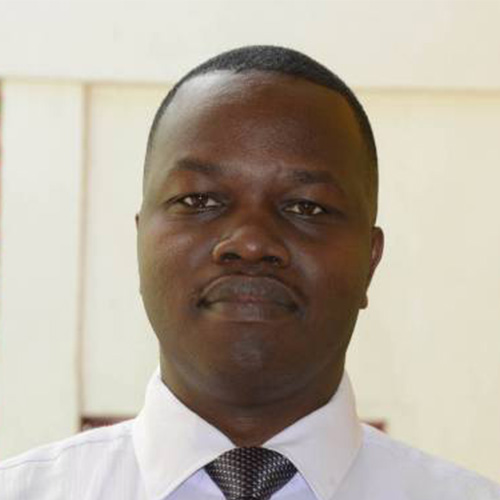 Dr Joseph Kathiai Kurauka
Dr Joseph Kathiai Kurauka Kenya
Cohort 3
Areas of research interest: Agroforestry-Based Bioenergy Systems, Renewable energy, Climate Change Studies, Natural Resource Management.
Home Institution Kenyatta University, Kenya
Host Institution University of Dar es Salaam
Summary of research
Rapid population growth has led to increased pollution and greenhouse gas emissions which have led to adverse climate change. Over 65% of the population of sub-Saharan Africa, are still without electricity or access to renewable energy. In order to mitigate impacts of climate change and conserve the environment for future generations, individuals, organizations, government as well as other concerned entities are innovating sustainable ways in which they can generate electricity and energy while in the process deriving a monetary benefit from the process. Trees are one of the most effective ways of harnessing the sun and turning it into usable energy, and trees can do this in a truly renewable way. Tree Based Integrated Food Energy System is a farming system that combines food crops and trees for wood energy production on the same farm. It aims at producing both food and wood energy on the same piece of land. Despite strong evidence linking benefits of agroforestry with community livelihoods, there is a dearth of studies linking farmers’ initiatives in renewable energy within the agroforestry system.
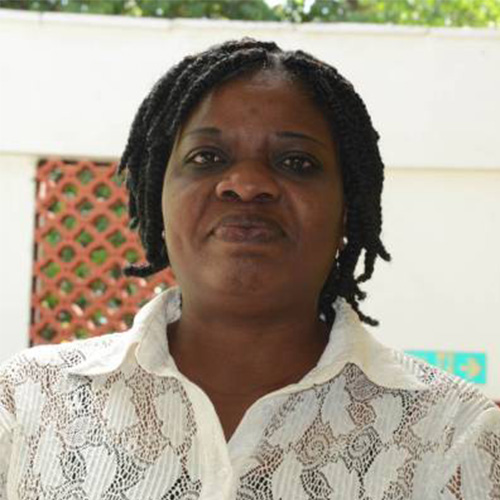 Dr Lala, Adebukunola Olufunmilayo
Dr Lala, Adebukunola Olufunmilayo Nigeria
Cohort 3
Areas of research interest: Pig production and climate change
Home Institution Federal University of Agriculture, Abeokuta, Ogun State Nigeria.
Host Institution Kwame Nkrumah University of Science and Technology, Kumasi, Ghana
Summary of research
The study is aimed to explore nutritional strategies with the use of synthetic amino acids (lysine, methionine, tryptophan and threonine) and phytase to reduce green house emissions through reduced nitrous oxide (NO2) and methane (CH4) in the manure, A total of thirty (30) growing pigs weighing between 15-20 kg will be fed six experimental diets and evaluated for growth, nutrient digestibility (dry matter, energy, nitrogen, organic matter), amino acid utilization and manure gas emissions at the end of the 16-week experiment.
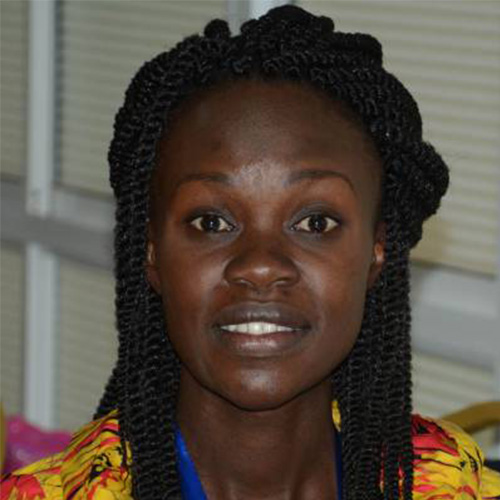 Dr Majale Christine
Dr Majale Christine Kenya
Cohort 3
Areas of research interest: Urban Waste Management; Climate Change
Home Institution Kenyatta University: Kenya
Host Institution University of South Africa- UNISA: South Africa
Summary of research
An increasingly key focus of waste management activities is to reduce Green House Gas (GHG) emissions. From a climate perspective, the benefits of both re-use and recycling are realized in avoided GHG emissions from waste treatment and disposal, and a GHG benefit in avoided resource extraction and manufacture of new products. No study in East Africa has looked into carbon emissions linked to plastic waste innovations which could in the long run contribute significantly to total GHG emissions. Literature of 2010 records that 10% of the waste generated in Nairobi, Kenya is plastic waste. The informal recycling sector plays a significant, yet largely unrecognized role in plastic waste management. In Kenya,
private industrial actors largely rely on these informal actors to provide them with plastic waste as raw material. This study therefore seeks to assess the contribution of plastic waste innovations (Innovation is here defined as a practice in which actors add value to plastic waste and close the material cycle) by these informal actors to climate change
mitigation efforts. Quantifying the benefits of their activities will bring to the fore the role that such groups can play in the bigger goal of climate change mitigation efforts. Recognizing their role could facilitate friendly waste management policies and a possible platform to lobby for tax reductions directed at waste management activities of such
groups.
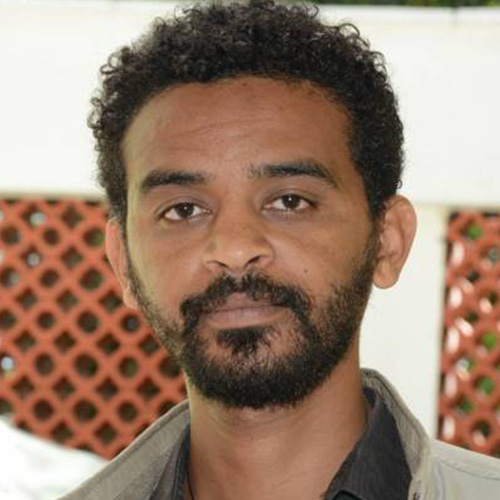 Rettie, Fasil Mequanint
Rettie, Fasil Mequanint Ethiopia
Cohort 3
Areas of research interest: Urban Waste Management; Climate Change
Home Institution Ethiopian Institute of Agricultural Research (EIAR), Ethiopia
Host Institution Makerere University, Department of Geography, Geo-Information and Climatic Sciences, Uganda
Summary of research
Agriculture is highly sensitive to climatic parameters and numerous studies show that Africa will be highly affected by long-term climate changes, mostly in a negative manner, and adaptation is required. Despite a number of limitations to be clearly understood, the value of the application of climate prediction in agriculture under current and future climates is evident. With the availability of climate predictions produced by several global climate models (GCMs), in the past decade, multi-model ensemble (MME) techniques have been developed to improve the accuracy in seasonal predictions by reducing uncertainties associated with individual models. The main purpose of this study is, therefore, to contribute to understanding of the potential use of seasonal forecasts downscaled from a GCM and improving the current seasonal precipitation forecast system.
 Mr Mollel, Jackson
Mr Mollel, Jackson Tanzania
Cohort 3
Areas of research interest: Urban Waste Management; Climate ChangeControl of infectious diseases and Investigating biological activities of natural products.
Home Institution Muhimbili University of Health and Allied Sciences (MUHAS), Tanzania
Host Institution Makerere University of Ibadan (UI), Nigeria
Summary of research
Cholera is among the major public health problems in most developing countries. In Tanzania cholera outbreaks have been reported since 1974. The disease is caused by a marine bacterium V. cholerae. As an environmental pathogen; seasonal variation and climate changes influence cholera epidemics. For example in the coastal region of mainland Tanzania, a significant association between the number of cholera cases and climatic has been established. Bacteriophage infecting V. cholerae (vibriophages) is a biological factor known to impart a natural control and evolution of V. cholerae. There is mounting evidence that vibriophages in water bodies down-regulates the prevalence of V. cholerae and eventually decrease re-emergence of cholera outbreaks. Despite such an important association, the impact of climatic conditions on vibriophages remains unknown. The present study aims to assess the effects of climatic conditions on vibriophages and establish its association with seasonal variation of V. cholerae in water bodies in Dar es salaam, Tanzania.
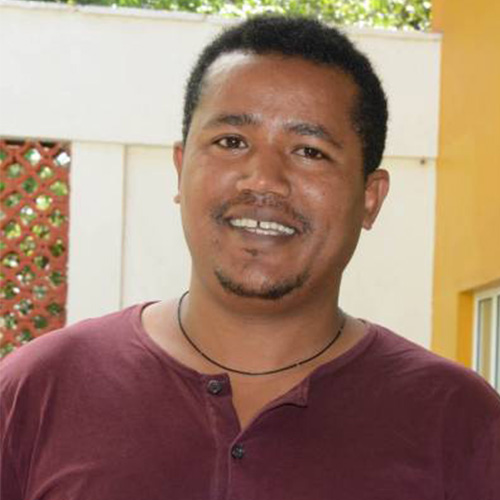 Mr Mulat Girma Muluken
Mr Mulat Girma Muluken Ethiopia
Cohort 3
Areas of research interest: Climate change and Small holder Farmers Aspiration.
Home Institution Wollo University, Ethiopia
Host Institution University of Nairobi, Kenya
Summary of research
Poverty and food insecurity remain as a major challenges of smallholder farmers in the developing nations. Though previous studies focused on the external factors (resource related)for the perpetuation of poverty, internal factors like aspiration failure are also found to play their own role. Thus, solving both the resource (external) factors as well as the internal constraints would have paramount significance in tackling the two challenges. However, limited researches have been done on how the individual aspiration is formed. Indeed, two process are pointed out to form individual aspiration level; past experiences and comparison with important others. Here it is hypothesized that past experience of
climate shocks, as stimuli, can play a role in the aspiration formation of smallholder farers. Thus, in this research, the impact of previous climate related shocks on the aspiration formation of farmers and its gender perspective will be assessed. In doing so it will serve as a point of departure to frame an intervention option different from the resource
oriented past endeavors to tackle poverty and food insecurity. Beneficiaries of the output would be smallholder farmers and also the research and academic community.
 Dr A.T Muruviwa
Dr A.T Muruviwa South Africa
Cohort 3
Areas of research interest: Climate change and Human Health
Home Institution University of Fort Hare, South Africa
Host Institution Obafemi Awolowo University, Nigeria
Summary of research
The significance of this study is that it allows for the development of a more nuanced and robust climate change adaptation and mitigation policy on women’s health in Zimbabwe and Africa as a whole. Rather than focusing on the scientific assessment of climate change, the study interrogates the gender dimension of climate change to understand the gendered experiences of rural women’s health in relation to climate induced disasters such as severe flooding. Using a community-based dialogue-oriented approach the research will engage rural women stationed at Chingwizi Transit Camp, Zimbabwe who are victims of extreme events.
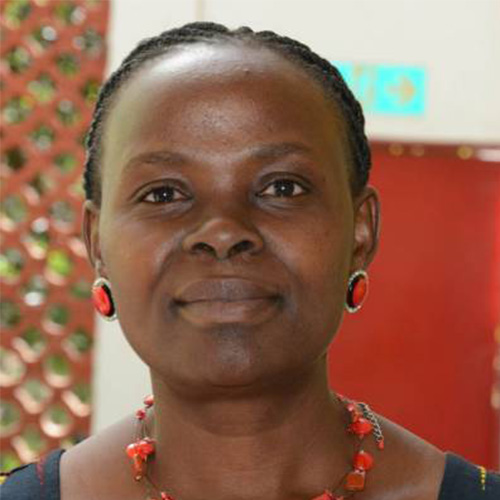 Dr Mvungi, Esther
Dr Mvungi, Esther Tanzania
Cohort 3
Areas of research interest: My research interest is centered in understanding how plants respond to both abiotic and biotic stressors
Home Institution University of Dar es Salaam, Tanzania
Host Institution University of Cape Town, South Africa
Summary of research
Seagrasses are marine angiosperms that exist fully submersed in water. They provide profound ecological and economical goods and services to marine environment and to the coastal communities. They support diverse marine organisms ranging from invertebrate to vertebrate, they are foods for marine herbivores, helps in nutrient cycling, carbon sequestration, and also provide fishing ground for human populations along the coast. Regardless of their valuable services, seagrasses survival is threatened by multitude stressors caused by ever increasing human population and hence increased anthropogenic activities along the coastal areas which as well contribute to the
climate change variability seen in present days. Thus in order to understand how multiple stressors affect seagrass ecosystem, this study is set out to investigate how anthropogenic induced ocean acidification, temperature, and nutrient enrichment affect the performance of seagrass Zostera capensis from the west coast of South Africa.
 Dr Nhundu Kenneth
Dr Nhundu Kenneth South Africa
Cohort 3
Areas of research interest: Climate Change Issues; Renewable Energy Food & Nutrition Security; Agricultural & Rural Development; New Institutional Economics; Agricultural Water Resources Management; Waste Management and Recycling
Home Institution University of Fort Hare, South Africa
Host Institution University of Ibadan, Nigeria
Summary of research
The demand for energy to meet social and economic development and improve human welfare and health, is increasing. Green House Gas (GHG) emissions from the energy services have contributed significantly to the historic increase in atmospheric GHG concentrations (IPCC, 2011). Reducing GHG from the energy system require interventions such as energy efficiency and Renewable Energy (RE). On the other note, electricity prices are said to have doubled and are still on the increase in the last few years, yet there is a deficiency in exposing South Africa to alternatives such as green energy (Robbins, 2013).Furthermore, a large population in South Africa do not have basic access to energy and are dependent on biomass, paraffin and candles. Therefore, it is envisioned that the deployment of RE technologies can be a mitigation options and can contribute to social and economic development, energy access, a secure energy supply, and reducing negative impacts on the environment and health. The development and transition to solar energy will align with provincial priorities such as youth employment, etc. It is expected that the outcome of the projects shall mainly benefit the marginalized rural communities of Eastern Cape Province.
 Dr Daniel Nyadanu
Dr Daniel Nyadanu Ghana
Cohort 3
Areas of research interest:Breeding for drought tolerance in cocoa, Climate change scenarios in cocoa growing areas in Ghana, Variation in water use efficiency among clones of cocoa.
Home Institution Kwame Nkrumah University of Science and Technology, Kumasi
Host Institution Kenyatta University
Summary of research
West Africa has experienced a drying of the climate, leading to decreases in annual rainfall by 30% in the West African Savanna. Farmers in Ghana in recent years experienced death of seedlings at establishment stage of cocoa and high seedling mortality has become a critical constraint to sustainable cocoa farming. Mitigating impacts of climate change on cocoa production is therefore no more an option but a dire need to protect
livelihood of farmers and sustain the economy of cocoa growing countries in West Africa. One of the means to address effects of climate change is to use irrigation. However, in many cocoa producing countries in West Africa, irrigation systems or facilities are lacking. Therefore, the survival of resource poor, small scale cocoa growers who depend on rain
for establishment of their cocoa has become a major challenge. Small-scale cocoa farmers are particularly vulnerable because of their limited adaptive capacity. Breeding for drought resistant varieties has been regarded as one of the major means to adapt to effects of climate change. In breeding for drought resistance, there is a need to understand the current trend of climate change scenarios in major cocoa growing areas of Ghana and to exploit the germplasm of cocoa under natural and managed drought stress conditions to identify sources of resistance to drougstove design engineers, and policymakers.
 Dr Sandra Ofori
Dr Sandra Ofori Nigeria
Cohort 3
Areas of research interest: Health and livelihoods
Home Institution University of Port Harcourt, Nigeria
Host Institution University of Ghana, Accra Ghana
Summary of research
In this study, short-term exposure-response relationships between indoor air pollutants and markers of CVD will be sought by monitoring the daily average household concentration of PM 2.5 and assessing CVD risk factors, blood pressure and carotid intima media thickness in the study population. The findings may form a basis for advocating for the use of cleaner fuels or modification of cook stoves and fireplaces and stimulate inter-sectorial collaboration between CVD and environmental scientists, cook stove design engineers, and policymakers.
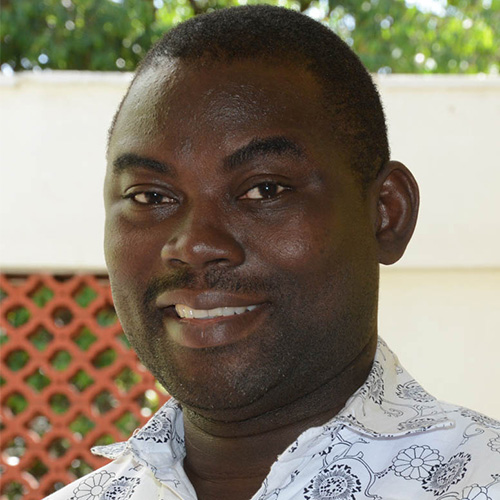 Dr Oladapo Olukunle Olaonipekun
Dr Oladapo Olukunle Olaonipekun Nigeria
Cohort 3
Areas of research interest: Climate change, ionizing radiation, modeling, agricultural productivity and agricultural policy.
Home Institution Ladoke Akintola University of Science and Technology, Ogbomoso, Nigeria
Host Institution Kwame Nkurumah University of Science and Technology, Kumasi, Ghana
Summary of research
In Nigeria and most African countries, probably due to low awareness of radon, its capability of being used as tools and indicators has not been widely explored, most especially in agricultural planning for yield improvement, in which soil moisture determination plays a key role. Hence, this study seeks to use the relationship between fluctuations in the atmospheric radon concentration as impacted by changes in climatic parameters as a tool for modeling variations in soil moisture content in the study area.
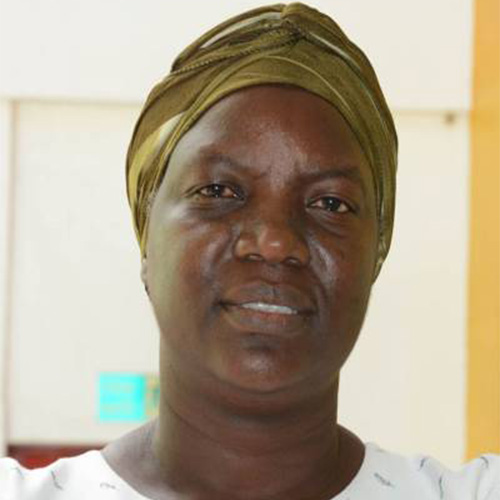 Dr (Mrs) Owoade, Folasade Mary
Dr (Mrs) Owoade, Folasade Mary Nigeria
Cohort 3
Areas of research interest: Estimating carbon sequestration potentials of some landuse systems.
Home Institution Ladoke Akintola University of Technology, Ogbomoso, Oyo State, Nigeria.
Host Institution University Of Ghana, Legon, Ghana.
Summary of research
Relationship between climate change and soil carbon resources is of key concern to human society. Soils have the potential to sequester carbon from the atmosphere with proper management. Soil’s usefulness as a carbon sink and drawdown solution is essential based on global estimates of historic carbon stocks and projections of rising emissions. Land use conversion and agricultural activities have been reported to produce 30% of total anthropogenic emissions both directly and indirectly (hidden carbon costs). Therefore, conversion to a restorative land use and adoption of best management
practices must be integral to any strategy of mitigating climate change.
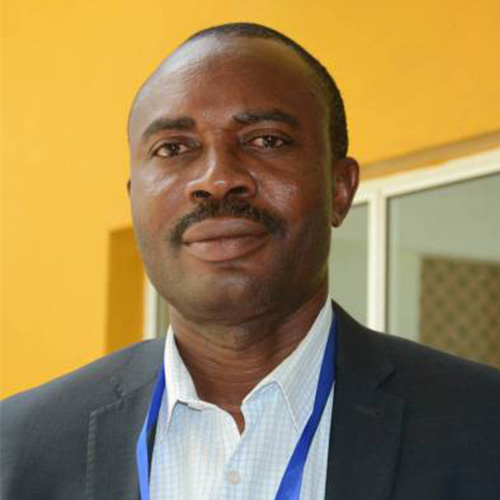 Dr Oyebola Oyediran Olusegun
Dr Oyebola Oyediran Olusegun Nigeria
Cohort 3
Areas of research interest: Aquaculture, Inland and Marine Fisheries Management , Climate Change, Fish Genetics and Breeding, Nutri-genomics and Fish Biotechnology
Home Institution University of Ibadan, Nigeria
Host Institution Makerere University, Uganda
Summary of research
Inadequate information on fish farmers resilience to climate change, climate change induced flood and attendant hazard, including fish invasions (wild-farm, vice versa), and dearth of holistic fingerprints for monitoring, control and surveillance of invasion of the highly cultured but invasive Clarias gariepinus, across its distribution range in Africa
necessitated this research. The study is expected to produce information on farmer’s knowledge, vulnerability and indigenous resilience to climate change, climate change induced flood and fish farm invasion by alien fishes including Clarias gariepinus strains in response to impact of climate change, It will also generate baseline holistic genomic tools for monitoring, control and surveillance of C. gariepinus in cases of climate change induced invasion
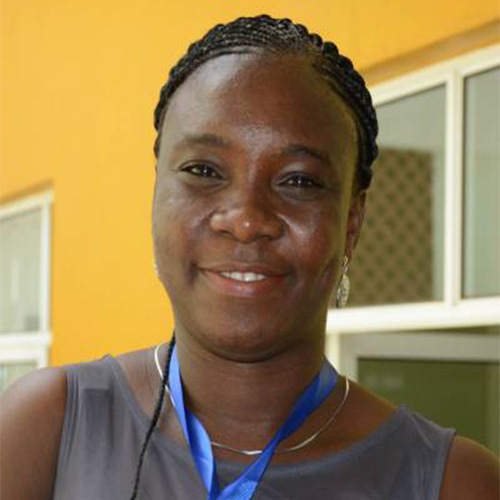 Popoola Kehinde Olayinka
Popoola Kehinde Olayinka Nigeria
Cohort 3
Areas of research interest: Gender studies, Rural and Social Planning
Home Institution Obafemi Awolowo University, Ie-Ife, Nigeria
Host Institution Moi University, Eldoret, Kenya
Summary of research
This study is important because studies that examined the choice of adaptation did not explicitly explain how climatechange/variability is perceived and adapted by the aged population especially in the rural areas of the different ecological zones of Nigeria. The findings of this study will provide Bench Mark Data on the perceived climate variability
impact related to livelihood activities of the rural aged and their indigenous coping strategies in the differentecological zones of Nigeria.
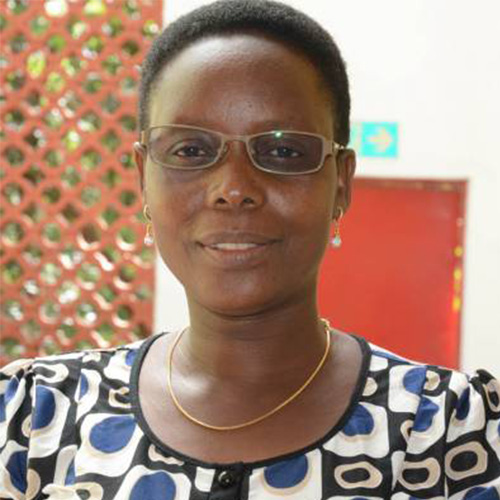 Dr Tilumanywa Verdiana Tindichebwa
Dr Tilumanywa Verdiana Tindichebwa Tanzania
Cohort 3
Areas of research interest:Environmental Analysis: GIS and Mapping: Application in Land cover and Land use studies and change detection;Environmental change:
Home Institution University of Dar Es Salaam, Tanzania
Host Institution University of Ibadan, Nigeria
Areas of research interest:Environmental Analysis: GIS and Mapping: Application in Land cover and Land use studies and change detection;Environmental change: Land use change, climate change and variability; Analysis and Management of Special Environments(mountains, drylands); Livelihoods; Tourism and development: potential, management and impact analysis
Summary of research
Agricultural support services are important in bringing about resilience in agriculture to the effect of climatevariation (FAO, 2013). However, inadequate agricultural support services in terms of personnel for farmers to get timelyinformation on extension, marketing, transport, input supply, credit, storage, processing and weather information serviceis a serious problem to agricultural development in sub Saharan Africa. The questions that remain are how theagricultural support system functions in the study area and in what ways can it be improved so as to enhancesmallholders’ capacity to adapt to climate variation?
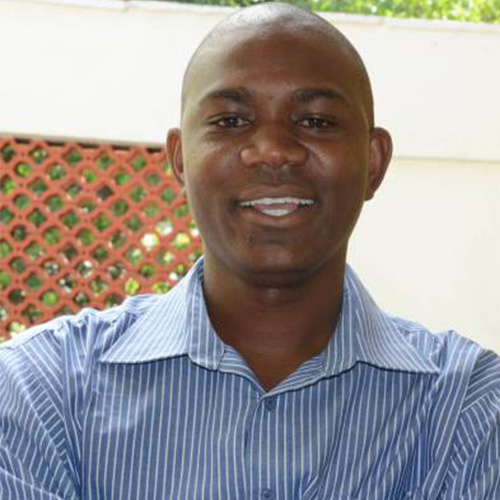 Dr Utete Beaven
Dr Utete Beaven Zimbabwe
Cohort 3
Areas of research interest: Fisheries and water resources in peri-urban areas
Home Institution Chinhoyi University of Technology, Zimbabwe
Host Institution University of Ibadan, Nigeria
Summary of research
This multivariate, interdisciplinary and multinational study intends to explore the food security, resilience andadaptive capacity of fisheries resources and fishing livelihood-dependent communities in the face of climate change in a peri-urban lake system. The underlying objective is to investigate the impact of climatic factors (rainfall and
temperature) on the water resources, and determine their translative impacts on fisheries and the vulnerability offishing livelihood-dependent communities in a peri-urban lake set up. It is hoped hirtherto neglected peri-urban small scale inland fisheries will get the necessary mainline governmental support and are recognised as unique viable enterprises with manifold roles in uplift the socio-economic status of millions of fisheries dependent communities.
 Doris Akachukwu
Doris Akachukwu Nigeria
Cohort 2
Research Topic: Potentials of biochar for the remediation of the clastogenic effect associated with polyaromatic hydrocarbons components of gas flares and heavy metal pollutants of soil and water in Allium cepa model.
 Fellowship Category: Post-Masters
Fellowship Category: Post-Masters
Home Institution: Michael Okpara University of Agriculture, Umudike, Nigeria
Mentor at Home Institution: Prof P C Ojimelukwe
Host Institution: University of Ibadan, Nigeria
Supervisor at Host Institution: Dr M A Gbadegesin
Research area of CVF Akachukwu is environmental pollution, risk assessment, biomarkers of exposure and remediation. During her fellowship period she will be working on ‘Potentials of biochar for the remediation of the clastogenic effect associated with polyaromatic hydrocarbons components of gas flares and heavy metal pollutants of soil and water in Allium cepa model’. She will focus on the assessment of clastogenic effects of polyaromatic hydrocarbons and heavy metals from gas flares that pollute soil and water. It also seeks to assess the effects of biochar as a remediation agent. She identifies that there is scanty information of the clastogenicity of components of gas flares and the remediation effects of biochar at present. At the end of the one year CIRCLE fellowship, she hopes to gain better experience and build collaborations that will help foster her teaching and research in the area of climate change.
 Shade John Akinsete
Shade John Akinsete Nigeria
Cohort 2
Research Topic: Soil carbon and greenhouse gas fluxes quantification and monitoring in sub-Saharan Africa: a case study of Ibadan metropolis, southwestern Nigeria.
 Fellowship Category: Post-PhD
Fellowship Category: Post-PhD
Nationality: Nigerian
Home Institution: University of Ibadan, Nigeria
Mentor at Home Institution: Prof Labode Popoola
Host Institution: International Livestock Research Institute (ILRI), Kenya
Supervisor at Host Institution: Dr David Pelster
CVF Akinsete’s research is ecosystems and climate change. Her research will focus on providing much needed data on soil carbon stocks, carbon fractions (recalcitrant and labile), potential sequestration capacity, and fluxes of greenhouse gases (CO2, N2O and CH4) of some southwestern Nigerian soils, which has significantly increased the inability to monitoring the effects of climate change in the region. She identifies that information on soil carbon stocks, carbon fractions and fluxes of greenhouse gases have received very little attention. She hopes that through her study effort will begin on establishing national and/or regional monitoring network sites and inventories of soil carbon storage. She hopes that CIRCLE will build her capacity for more research opportunities.
 Johnson Oluwole Akintonde
Johnson Oluwole Akintonde Nigeria
Cohort 2
Research Topic: Assessment of level of use of climate change adaptation strategies among arable crop farmers of Oyo and Ekiti Sates, Nigeria.
 Fellowship Category: Post-PhD
Fellowship Category: Post-PhD
Nationality: Nigerian
Home Institution: Ladoke Akintola University of Technology (LAUTECH), Nigeria
Mentor at Home Institution: Prof A B Ogunwale
Host Institution: Makerere University, Uganda
Supervisor at Host Institution: Prof Shuaib Lwasa
Climate change adaptation strategies is the research area of CVF Akintonde. Crop farmers are not novices about changes in climatic conditions and how it affects crop production. Several strategies have been introduced, adopted and used to mitigate different effects of climate change on crop production. His research will assess level of use of climate change adaptation strategies among arable crop farmers
 Sylvia Nana Ama Ankamah
Sylvia Nana Ama Ankamah Ghana
Cohort 2
Research Topic: Seasonal prevalence of climate-related diseases: modelling malaria and cholera dynamics in northern Ghana.
 Fellowship Category: Post-Masters
Fellowship Category: Post-Masters
Nationality: Ghanaian
Home Institution: University of Energy and Natural Resources (UENR), Ghana
Mentor at Home Institution: Prof K S Nokoe
Host Institution: Obafemi Awolowo University, Nigeria
Supervisor at Host Institution: Dr (Mrs) Peju Esimai
The area of research for CVF Ankamah is Climate Change Impact on Health. Her research will focus on producing evidence-based risk maps of malaria under five cases, estimating its prevalence rates and describing the distributional patterns over space and time incorporating climatic and non-climatic factors in Ghana. She hopes to contribute to detailed knowledge of spatial variation of malaria epidemiology and associated factors, especially for children (under five years of age) which is important for planning and evaluating malaria control measures..
 Amos Apraku
Amos Apraku Ghana
Cohort 2
Research Topic: Indigenous knowledge and climate change impact mitigation in relation to small-scale agriculture in Africa: a comparative study of South Africa and Kenya.
 Fellowship Category: Post-PhD
Fellowship Category: Post-PhD
Nationality: Ghanaian
Home Institution: University of Fort Hare (UFH), South Africa
Mentor at Home Institution: Prof Wilson Akpan
Host Institution: University of Nairobi, Kenya
Supervisor at Host Institution: Dr Simeon Dulo
CVF Apraku is interested in Indigenous knowledge and climate change impact mitigation in relation to small-scale agriculture in Africa. His CIRCLE research will do a comparative study of South Africa and Kenya. He will be examining how indigenous knowledge is put into use in Kenya and South Africa as a way of mitigating the impacts of climate change on small-scale agriculture. A key attribute of national and continental studies on climate change impacts assessment, mitigation strategies, and adaptation mechanisms in Africa is that; they lack idiographic nuances. Thus, little attention is paid to how local specific knowledge and practices help communities to cope with local adverse environmental and agricultural conditions as a result of climate change. He hopes to come out with verifiable evidence on the need to integrate indigenous knowledge into modern climate change impact mitigation policies and intervention programmes, particularly in agriculture, in Africa. He looks forward to building competent climate change research and leadership skills through the CIRCLE fellowship.
 Berchie Asiedu
Berchie Asiedu Ghana
Cohort 2
Research Topic: Economic impacts, adaptations and opportunities of climate change in small-scale aquaculture industry of Ghana, West Africa.
 Fellowship category: Post-PhD
Fellowship category: Post-PhD
Nationality: Ghanaian
Home Institution: University of Energy and Natural Resources (UENR), Ghana
Mentor at Home Institution: Prof F K E Nunoo
Host Institution: University of Ibadan (UI), Nigeria
Supervisor at Host Institution: Dr Adetola Jenyo-Oni
The research area of CVF Asiedu is small-scale aquaculture and climate change. His CIRCLE research focuses on investigating the economic and social impacts of climate change in small-scale aquaculture of Ghana and develop sustainable adaptation strategies. He identifies economic impact of climate change on small-scale aquaculture; social impact of climate change on small-scale aquaculture; quantification of impacts of climate change on aquaculture trade; quantification and description of climate change on vulnerable fish farmers groups; and determination of level of knowledge of small-scale fish farmers on adaptations and opportunities of climate change as key areas that have not been well researched. He hopes that his research will build comprehensive data on climate change and small-scale aquaculture which will lead to policies by relevant ministries, agencies, NGOs to address climate change and small-scale aquaculture.
 Sandra Akukpoga Atindana
Sandra Akukpoga Atindana Ghana
Cohort 2
Research Topic: Investigation into the possible effects of climate variability on benthic macro invertebrates species and the perception of local people on biodiversity of fish in a lagoon in the central region of Ghana.
 Fellowship Category: Post-Masters
Fellowship Category: Post-Masters
Nationality: Ghanaian
Home Institution: University for Development Studies (UDS), Ghana
Mentor at Home Institution: Dr Joseph Amikuzuno
Host Institution: University Of Ibadan, Nigeria
Supervisor at Host Institution: Prof O Fagbola
CVF Atindana’s research area is climate variability, biodiversity conservation and ecological health of aquatic systems. Her research will assess the ecological health of a lagoon through the presence or absence of benthic macro invertebrate species and the effects of varying climate on biotic indices of the species. Her study is expected to provide information on physical and chemical properties of the lagoon; identify anthropogenic and natural sources of degradation, if any, in the waterbody; produce a checklist of the various macro invertebrate communities in the lagoon; know the ecological status of the water; classify the fish in the lagoon into endangered, critically endangered and threatened; and identify factors that results in changes in breeding season, wide variations in fish growth and taste.
 Ayansina Ayanlade
Ayansina Ayanlade Nigeria
Cohort 2
Research Topic: Perceptions and responses to climate change impacts, adaptive capacity and vulnerability among rural farmers.
 Fellowship Category: Post-PhD
Fellowship Category: Post-PhD
Nationality: Nigerian
Home Institution: Obafemi Awolowo University (OAU), Nigeria
Host Institution: International Livestock Research Institute (ILRI), Kenya
Supervisor at Host Institutions: Dr Maren Radeny
CVF Ayanlade’s area of research is Climate change impacts on agriculture and society using applied environmental remote sensing and GIS. His CIRCLE research attempts to look at the climate change/variability impacts on agricultural sector, with particular reference to local farmer awareness and their adaptive capacities. The research holds the benefits of enhancing sensitivities to climate change and adaptive capacity of rural farmers through climate-smart agriculture. He hopes the knowledge and experience gained from this research and the CIRCLE fellowship will be very useful to him in his work as a lecturer and researcher in Nigeria.
 Habitamu Taddese Berie
Habitamu Taddese Berie Ethiopia
Cohort 2
Research Topic: Estimating carbon dioxide emissions from deforestation and forest degradation in Wondo Genet sub-catchment, Ethiopia.
 Fellowship Category: Post-Masters
Fellowship Category: Post-Masters
Nationality: Ethiopian
Home Institution: Hawassa University (HU), Ethiopia
Mentor at Home Institution: Dr Mesele Negash
Host Institution: Addis Ababa University, Ethiopia
Supervisor at Host Institution: Dr Teshome Soromessa
His research interest is in natural resources management. His study will try to estimate the trends of deforestation and forest degradation in the study area and quantify the amount of carbon dioxide emission. There is limited information about deforestation and forest degradation in Ethiopia in general, and in Wondo Genet sub-catchment in particular. In addition, his study will try to test appropriate techniques of estimating deforestation and forest degradation in the horn of Africa in general. He hopes the CIRCLE Fellowship will enhance his competence in climate change research.
 Etaferahu Kassa Ejegu
Etaferahu Kassa Ejegu Ethiopia
Cohort 2
Area of research: Optimisation of environmental concern and economic gain.
 Fellowship Category: Post-Masters
Fellowship Category: Post-Masters
Nationality: Ethiopian
Home Institution: Ethiopia Institute of Agricultural Research (EIAR), Ethiopia
Mentor at Home Institution: Dr Dawit Alemu
Host Institution: University of Ghana, Ghana
Supervisor at Host Institution: Prof Samuel N A Codjoe
Research focus: There is an emerging expansion in area and investment in the Ethiopian sugar production. As sugarcane plantation expands, the pre harvest burning which is a common practice and used to remove the leaf from the steam increases. The burning contributes to the increase in greenhouse gas emission. Understanding environmental and economic impacts of this practice will help to develop economically feasible and environmental friendly production system. Thus, the study aims to identify economic and environmental tradeoffs because of this practice as well to suggest appropriate environmental measures to policy makers.
 Samuel Olushola Fadairo
Samuel Olushola Fadairo Nigeria
Cohort 2
Research Topic: Broaching research on corruption in ecological fund management for climate change mitigation.
 Fellowship Category: Post-PhD
Fellowship Category: Post-PhD
Nationality: Nigerian
Home Institution: University of Ibadan (UI), Nigeria
Mentor at Home Institution: Prof Janice Olawoye
Host Institution: University Of Cape Town, South Africa
Supervisor at Host Institution: Prof Richard Calland
CVF Fadairo is researching on corruption in ecological fund management for climate change mitigation in Nigeria under the broad theme of climate change financing and policy. He hopes his research will stimulate debate on transparency in climate change financing.
 Kidane Giday Gebremedhin
Kidane Giday Gebremedhin Ethiopia
Cohort 2
Research topic: Forest species composition change, carbon dynamics and climate change impacts in dry Afromontane forest of Northern Ethiopia: forest restoration options for climate change mitigation in the drylands.
 Fellowship Category: Post-PhD
Fellowship Category: Post-PhD
Nationality: Ethiopian
Home Institution: Mekelle University, Ethiopia
Mentor at Home Institution Dr Dereje Assefa
Host Institution: Addis Ababa University, Ethiopia
Supervisor at Host Institution: Dr Teshome Soromessa
The focus of CVF Gebremehdin’s research is investigating the effect of silvicultural treatments on regeneration, growth and carbon dynamics in a long term restoration experiment of remnant forest reserve. In Ethiopia anthropogenic factors has profoundly altered vegetation resources where ecosystem services and climate change mitigation potentials are severely impacted. Thus, exploring possibilities of restoration of these resources is expected to give an important impulse to their conservation and sustainable use and contribute towards the current thinking in forest management, Improved Forest Management (IFM), which is taken as a priority REDD+ strategy for the tropics.
 Showman Gwatibaya
Showman Gwatibaya Zimbabwe
Cohort 2
Research Topic: Developing a model for assessing effects of breed and feeding regime on enteric methane gas emissions from African Sanga cattle.
 Fellowship Category: Post-Masters
Fellowship Category: Post-Masters
Nationality: Zimbabwean
Home Institution: Chinhoyi University of Technology (CUT), Zimbabwe
Mentor at Home Institution: Dr Raphael Jingura
Host Institution: International Livestock Research Institute (ILRI), Kenya
Supervisor at Host Institution: Dr John Goopy
The research area of CVF Gwatibaya is “Livestock Systems and the Environment” and researching into ‘Developing a model for assessing effects of breed and feeding regime on enteric methane gas emissions from African Sanga cattle’. The research focuses on predicting enteric methane emission using animal characteristic and activity data and directly quantifying enteric methane emissions using respiration chambers. He hopes that his research will address the lack of information regarding correct enteric methane emission factors for cattle breeds of African origin. He will try to come up with near correct enteric methane emission factors for Sanga breeds and formulate prediction models. At the end of the CIRCLE fellowship, Gwatibaya hopes to have acquired knowledge and skills regarding different techniques that can be used to estimate, measure and predict enteric methane emissions from cattle production systems.
 Benson Chuks Iweriebor
Benson Chuks Iweriebor Nigeria
Cohort 2
Research Topic: Effects of climate change on the prevalence of arboviruses (Rift Valley fever virus and West Nile virus) among mosquitoes and the associated vulnerabilities in the Karoo region contiguous to the Eastern Cape and Free State Provinces of South Africa.
 Fellowship Category: Post-PhD
Fellowship Category: Post-PhD
Nationality: Nigerian
Home Institution: University of Fort Hare, South Africa
Mentor at Home Institution: Prof Anthony Okoh
Host Institution: Muhimbili University of Health and Allied Sciences, Tanzania
Supervisor at Host Institution: Dr Elia Mbaga;
CVF Iweriebor’s research area is infectious diseases. His research focuses on the role of climate change on the distribution and prevalence of arboviruses and the possibility of their transmission to humans via mosquitos’ bites. At the end of the CIRCLE visiting fellowship, Iweriebor hopes to come up with information about the epidemiology of arboviruses in the study area. He believes CIRCLE will open new doors for further research opportunities.
 Faith Oluwasinaayomi Kasim
Faith Oluwasinaayomi Kasim Nigeria
Cohort 2
Research Topic: Effects of climate change on urban liveability and livelihood options
 Fellowship Category: Post-PhD
Fellowship Category: Post-PhD
Nationality: Nigerian
Home Institution: University of Ibadan, Nigeria
Mentor at Home Institution: Prof C O Olatubara
Host Institution: The Organisation for Social Science Research in Eastern and South Africa (OSSREA), Ethiopia
Supervisor at Host Institution: Dr Muluneh W Abshare
CVF Kasim’s research is focusing on urbanisation and climate change. He will research into human activities that contributes to climate change; and the effects of land use and land cover change on climatic condition liveability, livelihood options and food security. Research on climate change, especially in the developing countries, has been on rural settings with attention on its effects on agricultural activities. There is paucity of research on urban environment as driver of climate change and as the ultimate recipient of its impacts. The central argument of the research is that land use characteristics influence climate change and that climate change impact urban environment. Kasim hopes to improve on his research skills; build relationship and network; and publish in peer review journals locally and internationally through the CIRCLE fellowship.
 Omosivie Maduka
Omosivie Maduka Nigeria
Cohort 2
Research Topic: Gas flaring and climate change: an analysis of the impact on the health and well-being of communities in the Niger Delta region of Nigeria.
 Fellowship Category: Post-PhD
Fellowship Category: Post-PhD
Nationality: Nigerian
Home Institution: University of Port Harcourt (UNIPORT), Nigeria
Mentor at Home Institution: Dr Charles Tobin-West
Host Institution: Kwame Nkrumah University of Science and Technology (KNUST), Ghana
Supervisor at Host Institution: Dr Easmon Otupiri
CVF Maduka is researching into Climate Change and Health and well-being. Her research interest is in Emerging health issues and environmental changes. Her CIRCLE research focuses on using an analytical design to describe the impact of gas flaring and climate change on the health of communities in the Niger Delta region of Nigeria. Majority of existing studies evaluate only a few health effects, lack an analytical design and use small sample sizes. This study seeks to bridge these gaps and quantify the health and environmental effects of gas flaring and climate change in the Niger Delta. During the course of the fellowship, she expects to build her capacity to conduct and disseminate quality research that adds value to efforts to mitigate climate change in oil producing countries.
 Pax Jessey Masimba
Pax Jessey Masimba Tanzania
Cohort 2
Research Topic: Assessment of the bioactivity of roots and leaves of Carissa spinarum extracts from two geographic locations in two seasons in Tanzania against some pathogenic bacteria and fungi.
 Fellowship Category: Post-PhD
Fellowship Category: Post-PhD
Nationality: Tanzanian
Home Institution: Muhimbili University of Health and Allied Sciences (MUHAS), Tanzania
Mentor at Home Institution: Dr Ester Innocent
Host Institution: University of Dar es Salaam, Tanzania
Supervisor at Host Institution: Dr Rose Masalu
CVF Masimba’s research seeks to establish whether leaves can be an alternative plant part that can be harvested for medicinal purpose at a specific season and thereby help in conservation of this plant. In addition, he will find out which geographical region is optimal for propagation of Carissa spinarum for medicinal purposes. I expect to meet and share issues related to climate change with experts in this field and form research networks and collaborations.
 Wondye Admasu Molla
Wondye Admasu Molla Ethiopia
Cohort 2
Research Topic: Apiculture a climate resilient green economy: its contribution for rural livelihood, employment creation and sustainable forest and area closure management in Eastern Amhara and Tigray regional states.
 Fellowship Category: Post-PhD
Fellowship Category: Post-PhD
Nationality: Ethiopian
Home Institution Wollo University Ethiopia
Mentor at Home Institution: Dr Abate Getahun Ayele
Host Institution: University of South Africa, South Africa
Supervisor at Host Institution: Dr Muchaiteyi Togo
CVF Molla’s area of research is climate resilient green growth. Ethiopia launched the sustainable land management program and consequently, farmers in each region have allocated 30 to 60 days/year free labour for soil and water conservation activities to restore the ecology and adapt the climate change and large area closures are developed with the aim of restoring the land and biodiversity. Thus, the main aim of his research is to investigate how apiculture is integrated with sustainable natural resource management and green growth within the context of job creation and income generation along with climate change adaptation and mitigation. Through the CIRCLE programme, he hopes his research and academic career would be improved to contribute in climate change adaptation and mitigation
 Faridah Ssendagire Nalwanga
Faridah Ssendagire Nalwanga Uganda
Cohort 2
Research Topic: Environmental change and emergent livelihood outcomes in natural resource dependent communities in Queen Elizabeth National Park.
 Fellowship Category: Post-Masters
Fellowship Category: Post-Masters
Nationality: Ugandan
Home Institution: Makerere University (MU), Uganda
Mentor at Home Institution: Dr Paul Musali
Host Institution: University of Cape Town, South Africa
Supervisor at Host Institution: Prof Merle Sowman
CVF Nalwanga’s area of research is Women Adaptation to Climate change and implication on Health in Natural Resource Dependent Communities. During her CIRCLE fellowship, she will investigate the drivers of environmental change, adaptation strategies, factors that enable or constrain adapted livelihoods, role of actors, and map where the most vulnerable populations to environmental change are located. The focus will be on women because of their limited access to and control over resources, different position within the household and different and changing roles in society. The study will explore the unique ability of women to respond to environmental change.
 Catherine V Nnamani
Catherine V Nnamani Nigeria
Cohort 2
Research Topic: Evaluation of genetic variability within African-Yam- Bean accessions for food security in a climate changing scenario using Single Nucleotide Polymorphism
 Fellowship Category: Post-PhD
Fellowship Category: Post-PhD
Nationality: Nigerian
Home Institution: Ebonyi State University (EBSU), Nigeria
Mentor at Home Institution: Prof H O Oselebe
Host Institution: Obafemi Awolowo University (OAU), Nigeria Supervisor at Host Institution: Prof S A Ajayi
Molecular Biology and Underutilized Plant Genetic Resources for food is CVF Nnamani’s research area. Her CIRCLE research is focused on using Simple Sequence Repeat (SSRs) as a molecular tool to assess the genetic variability in AYB accessions and correlate data with physiological seed quality test to aid selection of better accessions to enhance rapid and uniform seedling establishment under climate changing scenario. She expects her research findings to rationalize the status of AYB’s competitiveness with other common staples for improved food security and sustainable germplasm conservation in Nigeria.
 Abimbola Oluwaranti
Abimbola Oluwaranti Nigeria
Cohort 2
Research Topic: Molecular characterisation and evaluation of elite maize germplasm for drought tolerance.
 Fellowship Category: Post-PhD
Fellowship Category: Post-PhD
Nationality: Nigerian
Home Institution: Obafemi Awolowo University (OAU), Nigeria
Mentor at Home Institution: Prof S A Ajayi
Host Institution: Makerere University (MU) Uganda
Supervisor at Host Institution: Dr R Edema
CVF Abimbola’s research area is Climate Change, Agriculture and Food Security. Her proposed study is to characterise available tropical elite maize varieties for adaptability to the current resilient climate change Via SSR Molecular Markers before disseminating these varieties to farmers to enhance food security as well use as genetic materials for the development of more drought tolerant maize varieties. She identifies that phenotypic selection for drought tolerance is less accurate and takes time; therefore there is need for more accurate and faster selection method such as marker assisted selection (MAS) for the improvement of this crop.
 Awakilitu Bola Onifade
Awakilitu Bola Onifade Nigeria
Cohort 2
Research Topic: Climate change adaptation as it affects pyrolysis of lignocellulosic materials from oil palm fruit fibre and physic nut shell at low temperature and pressure for energy and chemical productions.
 Fellowship Category: Post-PhD
Fellowship Category: Post-PhD
Nationality: Nigerian
Home Institution: Ladoke Akintola University of Technology (LAUTECH), Nigeria
Mentor at Home Institution: Prof S O Jekayinfa
Host Institution: University of Nairobi, Kenya
Supervisor at Host Institution: Prof Shem Wandiga
Her research area of interest is renewable energy and technology. Her research will focus on extraction and pyrolysis of the lignocellulosic materials from palm fruit fibre and physic nut shell under low temperature and pressure to produce energy and chemicals. She hopes to improve her research skills through CIRCLE.
 Phyllis Bernice Opare
Phyllis Bernice Opare Ghana
Cohort 2
Research Topic: Developing a model for gender perception and adaptation practices to mitigate the effects of climate change among small scale farmers in the Sunyani Municipality.
 Fellowship Category: Post-PhD
Fellowship Category: Post-PhD
Nationality: Ghanaian
Home Institution: University of Energy and Natural Resources (UENR), Ghana
Mentor at Home Institution: Prof Daniesl Obeng Ofori
Host Institution: Makerere University (MU), Uganda
Supervisor at Host Institution: Prof Gorettie Nabanoga
CVF Opare is interested in ‘Gender and adaptive capacity enhancement’. Her research under the CIRCLE programme will focus on building adaptive capacity in small holder farmers, both males and females in the Sunyani municipality, Ghana. She hopes to come out with a model that will be a tool for educators, agricultural extension officers, policy makers and other stakeholders in the agricultural sector to raise awareness concerning climate change impacts and adaptation practices that can help mitigate those impacts. The model will have inbuilt participatory practices that will enable rural farmers especially women gain capacity to develop and adopt sustainable adaptation practices that can help mitigate the impacts of climate change. Through CIRCLE, she hopes to build her capacity on issues of climate change, climate adaptive capacity, and adaptation practices that are available or are being developed so she can help in the dissemination of such information.
 Daniella Delali Sedegah
Daniella Delali Sedegah Ghana
Cohort 2
Research Topic: Adapting for the future: traditional mechanisms in managing the impact of climate change on watershed in Ghana.
 Fellowship Category: Post-PhD
Fellowship Category: Post-PhD
Nationality: Ghanaian
University of Energy and Natural Resources (UENR), Ghana
Mentor at Home Institution: Prof Daniels Obeng-Ofori
Host Institution: Obafemi Awolowo University, Nigeria
Supervisor at Host Institution: Prof Ayobami Salami
CVF Sedegah’s research focuses on understanding the coping strategies associated with climate change impacts in Nigeria to inform planned adaptation. She believes it is important to have a better understanding of processes that shape farmers’ adaptation to climate change to identify vulnerable entities and to develop well-targeted adaptation policies.
 Victoria Tanimonure
Victoria Tanimonure Nigeria
Cohort 2
Research Topic: Underutilised indigenous vegetables for dietary diversity and revenue generation in response to climate change in southwestern Nigeria.
 Fellowship Category: Post-Masters
Fellowship Category: Post-Masters
Nationality: Nigerian
Home Institution: Obafemi Awolowo University (OAU), Nigeria
Mentor at Home Institution: Prof A B Ayanwale
Host Institution: University of Ghana (UG), Ghana
Supervisor at Host Institution: Prof Samuel N A Codjoe
CVF Tanimonure will research into underutilized indigenous vegetables (UIVS) for dietary diversity and revenue generation in response to climate change in Nigeria. A growing body of literature on climate change suggests that indigenous crops are resilient and as such adapt better to the negative effects of climate change. She will seek to establish relationship between climate change variables and the livelihood, dietary diversity and food security of the producers of UIVs in Nigeria.
 Eunice Yemisi Thomas
Eunice Yemisi Thomas Nigeria
Cohort 2
Research Topic: Effectiveness of agricultural organic waste to sequester carbon in soil planted to maize (A case study in mitigating climate change effect on soil carbon storage).
 Fellowship Category: Post-PhD
Fellowship Category: Post-PhD
Nationality: Nigeria
Home Institution: University of Ibadan, Nigeria
Mentor at Home Institution: Prof J A I Omueti
Host Institution: University of Ghana (UG), Ghana
Supervisor at Host Institution: Prof Samuel G K Adiku
CVF Thomas’ is interested in the use of fortified biochar to enhance carbon sequestration in soil. Her research is focusing on use affordable and accessible farm yard manure and rice husk biochar to mitigate greenhouse gas emissions and to develop an effective bio fertilizers technologies for farmers. Biochar from wood chips and other sources has been used over time to enhance carbon sequestration in soil. Findings, however, show that biochar are nutrient deficient with high carbon content even though by their properties they enhance physico- chemical properties of soils. This study seeks to improve the nutrients status of biochar by co-composting with manures. It is expected that co-composting process will reduce overall greenhouse gas emission far less then it would happen in normal farm waste composting process. At the end of the study, she hope to come up with a fortified biochar that will be easy for the farmer to produce which will also improve and increase crop production. She expects the experience of CIRCLE will better equip her as a researcher in the production of biochar which is an emerging technique use in sequestering carbon storage in soil.
 Portia Adade Williams
Portia Adade Williams Ghana
Cohort 2
Research Topic: Assessing the impact of climate change on agricultural production: the case of pineapple production in Ghana.
 Fellowship Category: Post-Masters
Fellowship Category: Post-Masters
Nationality: Ghanaian
Home Institution: Science and Technology Policy Research Institute of the CSIR (STEPRI-CSIR), Ghana
Mentor at Home Institution: Dr George Owusu Essegbey
Host Institution: University of Cape Town (UCT), South Africa
Supervisor at Host Institution: Dr Olivier Crespo
CVF Williams’ area of research is Agricultural productivity, Innovation, Climate Impacts and Policy. She is researching into ‘Climate Variability Impact on Food Production in Ghana: The case of Pineapple’. The research focuses on assessing the effect of climate variability on pineapple production and coping strategies employed by pineapple farmers in Ghana. The study would provide a holistic study on pineapple production which will play a critical role in assisting pineapple farmers adapt to climate variability and cope with short term impacts.
 Zahor Khalifa Zahor
Zahor Khalifa Zahor Tanzania
Cohort 2
Research Topic: Dynamic forest cover change and their impacts on community livelihood in Kilwa District, Tanzania.
 Fellowship Category: Post-PhD
Fellowship Category: Post-PhD
Nationality: Tanzanian
Home Institution: University of Dar es Salaam, Tanzania
Mentor at Home Institution: Prof Pius Yanda
Host Institution: University of Ghana (UG), Ghana
Supervisor at Host Institution: Prof Samuel N A Codjoe
CVF Zahor employs his knowledge in Participatory Geographical Information System (PGIS) and forest loss to study drivers of forest change and their implications on livelihoods. The findings from his study, he believe, will provide useful inputs to planners, policy and decision makers on management of coastal forests resource within the context of resource use and climate change adaptation to improve livelihoods.
 Kidist Abera Anteneh
Kidist Abera Anteneh Ethiopia
Cohort 1
Research focus: Evaluation of the impact of climate change on maize (Zea mays L.) production via crop simulation modelling.
Home Institution: Ethiopian Institutes of Agricultural Research
Host institution: University of Cape Town, South Africa.
Area of research: Biometrics, GIS and agrometeorology research.
The purpose of this research is to formulate adaptation options, which should be practical, affordable and acceptable to farmers through quantifying the impact of observed climate variability and possible future changes on maize crop production using a state-of-the-art dynamical crop simulation models.
 Abhram Belay Mekonnen
Abhram Belay Mekonnen Ethiopia
Cohort 1
Area of research: Economic value of natural resources (Contingent valuation approach). Economic impact of climate change on agricultural crop production. Agri-business and value chain adaptation to climate change.
Home Institution: Hawassa University
Host institution: International livestock research institute, Kenya.
Research focus: This research focuses on adaptation to climate change by smallholder farmers and determinants to their adaptation decision in Central Rift Valley of Ethiopia. Adaptation to climate change is a two-step process, which involves perceiving that the climate is changing and then responding to changes through adaptation strategies. The perception of the farmers on climate change will determine the adaptation strategies of the farmers. The potential influential factors that affect farmer’s adaptation strategies are supposed to be environmental, economical and institutional factors. This study addresses the following research questions. How do smallholder farmers perceive climate change and its impacts? How do they respond to climate change impacts? What are the main factors that affect the response of smallholder farmers to climate change?
 Samuale Tesfaye Baye
Samuale Tesfaye Baye Ethiopia
Cohort 1
Area of research: Eco-hydrology; ecological restoration; watershed management; surface hydrology...
Home Institution: Mekelle University
Host institution: Addis Ababa University, Ethiopia
Area of research: Eco-hydrology; ecological restoration; watershed management; surface hydrology; water balance in dryland areas; climate change adaptation and mitigation; land use land cover assessment; GIS and RS application to hydrology, forestry and land resources assessment; hillside management; environmental entrepreneurship; green economy; carbon forestry and landscaping.
Research focus: The study on climate change impact on the eco-hydrology of Geba Catchment, Tekez Basin in Ethiopia assesses and quantifies the changes (weather/climate) that will be anticipated, and their future potential impacts on the water and biota resources of the basin with respect to the changing climate. It investigates future expected anthropogenic activities which, consequently, indicate a potential for measurable changes in the conditions that control hydrologic processes and, the biotic composition and structures.
 Hadgu Hishe Teferi
Hadgu Hishe Teferi Ethiopia
Cohort 1
Area of research: Forestry and remote sensing (Forest contribution in carbon sequestration and the implication for climate change adaptation in creating climate change resilient ecosystem).
Host institution: Addis Ababa University, Ethiopia.
Area of research: Forestry and remote sensing (Forest contribution in carbon sequestration and the implication for climate change adaptation in creating climate change resilient ecosystem).
Research focus: The research assesses carbon sequestration in dry Afromontane forests and the effect of land use land cover changes on the amount of carbon stored in the forest ecosystem. Forest density changes over time and the effect of change in climate on the dynamism of the forest. The role of natural exclosures in mitigating climate change compared to the plantation exclosures. Looking in to different methods of assessing carbon for carbon management, alometric equations and remote sensing options for near real time carbon assessme
 Fikru Assefa Mengstie
Fikru Assefa Mengstie Ethiopia
Cohort 1
Area of research: Evaluate enhanced communities’ adaptive capacity to climate change in the Blue Nile catchment, Eastern Ethiopia.
Home Institution: Wollo University
Host institution: Addis Ababa University, Ethiopia.
Area of research: Evaluate enhanced communities’ adaptive capacity to climate change in the Blue Nile catchment, Eastern Ethiopia.
Research focus: The research evaluates the enhanced adaptive capacity of communities and local institutions in the regions of the Blue Nile Basin, Eastern Ethiopia to climate – induced water stress.
 Philip Antwi-Agyei
Philip Antwi-Agyei Ghana
Cohort 1
Area of research: Climate change and variability, food security, rural livelihoods, sustainable development, environmental policy, and environmental management.
Home Institution: Kwame Nkrumah University of Science and Technology
 Host institution: University of Ghana.
Host institution: University of Ghana.
Area of research: Climate change and variability, food security, rural livelihoods, sustainable development, environmental policy, and environmental management.
Research focus: A growing body of literature on climate change adaptation suggests that “climate compatible development (CCD)” can help open up strategies to land-users that will help them maintain productivity in the face of changing rainfall patterns. CCD draws together adaptation and mitigation efforts in a way that does not compromise development, providing opportunities to achieve “triple wins”. But while the idea of CCD is alluring, much remains unknown about how to actually realise such “triple wins” in national and regional level policy making. This research identifies how policies promote CCD and whether these policies support adaptation, mitigation and development on the ground in Ghana.
 Divine Odame Appiah
Divine Odame Appiah Ghana
Cohort 1
Area of research: Off-forest reserve farmers’ adaptation strategies to climate change.
Host institution: University of Ibadan, Nigeria.
Area of research: Off-forest reserve farmers’ adaptation strategies to climate change.
Research focus: The project assesses existing adaptation strategies and is developing new strategies to climate variability and change among off-reserve subsistent households, in the Offinso South Municipality in the Ashanti Region of Ghana. The research envisages delivering scientific knowledge on adaptation to climate variability for subsistent farmers. It would do so by delivering scientifically-grounded knowledge from the innovative Strategic Enterprise Intervention (SEI) approach. This would integrate local knowledge and resources to address adaptation to climate variability and change among the study actors. Subsistent farmers’ initiatives in sustainable rural livelihood, under climate change would be strengthened.
 Esther Ekua Amfoa Amoako
Esther Ekua Amfoa Amoako Ghana
Cohort 1
Area of research: The Impact of Anthropogenic Bushfires in Savannah/Parklands.
Home Institution: University for Development Studies
Host institution: University of Dar es Salaam, Tanzania.
Area of research: The Impact of Anthropogenic Bushfires in Savannah/Parklands.
Research focus: The deterioration of vegetation and soils is evidently caused by human activities, including the use of fire, be it as a part of traditional agricultural practice including the reduction of combustible litter on farmlands, to simulating new shoots to enhance grazing, or for hunting (Ashaley, 2012). These methods are very significant in the traditional farming systems in West Africa and have enormous effects on plant communities and soil productivity (Nsia-Gyabaah, 1996: Ashaley, 2012).
The research is investigating the impact of anthropogenic bushfires on species diversity, soil seed bank and soil biota.
 Mercy Afua Adutwumwaa Derkyi
Mercy Afua Adutwumwaa Derkyi Ghana
Cohort 1
Area of research: Linkage of social-natural-governing systems.
Home Institution: University of Energy and Natural Resources
Host institution: University of Ghana.
Area of research: Linkage of social-natural-governing systems.
Research focus: Disaggregating gender issues of how farmers mitigate and adapt to climate variability in agriculture-forest livelihood landscapes, the incentives, constraints and opportunities thereof is the focus of the research. The hypothesis is that men and women in this landscape due to socially constructed gender roles, access to and control of resources; and geographical locations are differently vulnerable to climate change and have diverse coping strategies to enhance their livelihoods and sustain the landscape’. Theoretical and methodological focus of the study is on three key concepts (i.e. gender, social–ecological system, climate change) and mixed methods respectively. The study hopes to contribute to policy interventions directed to the needs of the different gender categories.
 Amos Tiereyangn Kabo-bah
Amos Tiereyangn Kabo-bah Ghana
Cohort 1
Area of research: Hydrological modelling, applied remote sensing and GIS for resources management
Host institution: University of Ibadan, Nigeria.
Area of research: Hydrological modelling, applied remote sensing and GIS for resources management
Research focus: There is the need for continuous research on climate change especially at the national scale. It is already clear from literature that Ghana will be water stressed by 2020 irrespective of any adverse effects from climate change. With the nation’s economy heavily dependent on the Akosombo, Kpong and Bui Hydroelectric plants, it is imperative to research into the varying climatic conditions that affect water availability in these reservoirs. The accurate assessment of rainfall, temperature and evapotranspiration within the country are important indicators for showing the related water levels and associated impact on meeting energy demands in the country. The research assesses the impact of rainfall and evapotranspiration on energy generation hydropower generation in Ghana.
 Hannah Karuri
Hannah Karuri Kenya
Cohort 1
Area of research: Nematology/Biotechnology.
Home Institution: Embu University College
Host institution: University of Nairobi, Kenya.
Area of research: Nematology/Biotechnology.
Research focus: Sweet potato is an important food crop consumed throughout Africa. However, yields are reduced by commonly occurring root knot nematodes (RKN). In addition, the presence of other parasitic nematodes influences RKN population dynamics and increases the damage that they cause. Climate change may cause an increase in abundance of parasitic nematodes including RKN. The research selects RKN resistant sweet potato genotypes and determines the effect of climate on distribution and abundance of parasitic nematodes associated with Kenyan sweet potato. The research will provide information that will be important in mitigating the effects of climate change on sweet potato production.
 Justin Nyaga
Justin Nyaga Kenya
Cohort 1
Research focus: Current research is on the role of transpiration-driven mass-flow on growth and nutrient delivery to roots of C3 and C4 crops, and consequences of changing atmospheric CO2 concentration.
Host institution: University of Cape Town, South Africa.
Area of research: Plant physiology
Research focus: Current research is on the role of transpiration-driven mass-flow on growth and nutrient delivery to roots of C3 and C4 crops, and consequences of changing atmospheric CO2 concentration.
This research evaluates whether the concentration mechanism of C4 (maize) alter nitrate and ammonia uptake relative to C3 (wheat). It also seeks to find out whether nutrient supply can be optimised to account for transpiration differences and hence mass flow differences between C4 and C3 crops. This work also seeks to understand how elevated atmospheric CO2 alters nitrate and ammonia uptake through mass-flow in C4 (maize) relative to C3(wheat).
 Catherine Njeri Mungai
Catherine Njeri Mungai Kenya
Cohort 1
Area of research: Climate change, food security, gender, policy.
Home Institution: International Livestock Research Institute
Host institution: University of Nairobi, Kenya.
Area of research: Climate change, food security, gender, policy.
Research focus: The study seeks to understand the agriculture, climate change and trade policy and institutional environment as it relates to smallholders’ capacity to undertake climate smart agriculture in Kenya. There is an apparent need to understand the interrelationships between policies (and its actors) at national, county and community levels in order to recommend potential solutions that can support/create the enabling environment for the implementation of climate smart farming options. Using a gender lens, the study attempts to identify the missing link and suggest recommendations that can be used to improve the policy environment as well as enable adaptation to climate change at the end‐user level.
 Silas Odongo Oriaso
Silas Odongo Oriaso Kenya
Cohort 1
Area of research: Community-based climate change adaptation for sustainable agriculture in Kenyan Asals
Home Institution: University of Nairobi
Host institution: United Nations Environmental Programme (UNEP), Kenya.
Area of research: Community-based climate change adaptation for sustainable agriculture in Kenyan Asals
Research focus: The current research focuses on the application of community based climate change adaptation for sustainable agriculture in Kenyan ASAL areas. Specifically, the research will document all effective CBAs for agricultural production, develop effective CBA mainstreaming frameworks and disseminate the lessons learned to inform future climate change mitigation and adaptation in both Africa and the work.
 Celestine Azubuike Afiukwa
Celestine Azubuike Afiukwa Nigeria
Cohort 1
Area of research: Agricultural Biotechnology
Home Institution: Ebonyi State University
Host institution: Obafemi Awolowo University, Nigeria
Area of research: Agricultural Biotechnology
Research focus: The study seeks to find Simple Sequence Repeat (SSR) markers strongly linked to agronomic traits associated with drought tolerance in rice. The study aims to develop a protocol for applying molecular tool (marker-assisted selection) to facilitate breeding for drought resistance in Nigerian rice. The study was informed by the selection challenge our breeders face in developing improved varieties. They rely on the use of morphological (physical) markers for selection, which is not only time consuming but prone to substantial error owing to effects of environmental factors on gene expression.
 Bartholomew Ituma Aleke
Bartholomew Ituma Aleke Nigeria
Cohort 1
Area of research: Policies and information management on climate change adaptation.
Host institution: University of South Africa (UNISA), South Africa.
Area of research: Policies and information management on climate change adaptation.
Research focus: The research focuses on adaptation of social network technologies (SNTs) and diffusion of information and communication technology (ICT) innovation as a panacea to effective strategy for disseminating information about climate change impact on agribusiness.
 Olanrewaju Olusoji Olujimi
Olanrewaju Olusoji Olujimi Nigeria
Cohort 1
Research focus: The research centres on emission of greenhouse gases from charcoal production sites and associated health effects on charcoal workers.
Home Institution: Federal University of Agriculture, Abeokuta
Host institution: University of Ibadan, Nigeria.
Area of research: Environmental Pollution Monitoring, pollution indexing, nano-material synthesis and health risk assessment.
Research focus: The research centres on emission of greenhouse gases from charcoal production sites and associated health effects on charcoal workers.
 Omomowo Iyabo Olunike
Omomowo Iyabo Olunike Nigeria
Cohort 1
Area of research: Microbial Biotechnology
Home Institution: Ladoke Akintola University of Technology
Host institution: Obafemi Awolowo University, Nigeria
Area of research: Microbial Biotechnology
Research focus: The research focuses on isolation and characterisation of fungal diversity in soils under food crop cultivation in a tropical region (south-west, Nigeria) and their response to changes in climate. The research also focuses on establishing whether the abundance of the fungal population is affected by changes in climatic conditions, as well as if establishes Koch’s postulates.
 Funmilayo Grace Oni
Funmilayo Grace Oni Nigeria
Cohort 1
Area of research: Agroclimatolgy and agricultural system modelling.
Host institution: Obafemi Awolowo University, Nigeria.
Area of research: Agroclimatolgy and agricultural system modelling.
Research focus: Templates building for data generation towards model calibration and validation with respect to climatic relationship in production and the prediction of the growth process and yields of groundnut.
 Ifeanyi Ndubuto Nwachukwu
Ifeanyi Ndubuto Nwachukwu Nigeria
Cohort 1
Area of research: Smallholder production economics (agriculture).
Home Institution: Michael Okpara University of Agriculture
Host institution: (OSSREA) Kenyatta University, Kenya.
Area of research: Smallholder production economics (agriculture).
Research focus: The research focuses on behavioural response of food crops producing households to climate change menace. It specifically assesses the level of awareness of climate change adaptation measures among food crops producing households in the study area; determines the level of adoption of climate change adaptation measures by the households; estimates the determinants of climate change adaptation measures adopted in the study area; analyse factors influencing the choice of adaptation measures by the households.
 Catherine Abiola Oluwatoyin Akinbami
Catherine Abiola Oluwatoyin Akinbami Nigeria
Cohort 1
Area of research: Women entrepreneurship development, climate change and rural entrepreneurship development, entrepreneurship education.
Home Institution: Obafemi Awolowo University
Host institution: University of Ibadan, Nigeria.
Area of research: Women entrepreneurship development, climate change and rural entrepreneurship development, entrepreneurship education.
Research focus: The research evaluates the social dimensions of climate change on Nigerian rural women entrepreneurship development; having broad objective of exploring activities of women entrepreneurs in selected rural communities from three geopolitical zones in the country that reflects distinct vegetal covers. The specific objectives are to: codify and evaluate entrepreneurship current practices in rural economies; assess impact of climate change on entrepreneurship practices in rural economies; examine and apply relevant social impact indicators to rural economies as they relate to climate change; and, consider climate change mitigation strategies that could be transformed into entrepreneurship practices in rural economies.
 Abiodun Suleiman Momodu
Abiodun Suleiman Momodu Nigeria
Cohort 1
Area of research: Energy Use: Electricity and Climate Change.
Host institution: Kwame Nkrumah University of Science and Technology, Ghana.
Area of research: Energy Use: Electricity and Climate Change.
Research focus: Nigeria desires a transformation with adequate provision for needed infrastructure, including electricity, for development. This calls for adequate understanding of the trade-offs needed between economic growth and development on the one hand and climate change issues on the other hand. Conceptualising and implementing these trade-offs requires a systemic approach with different planning paradigms from what used to be the norm in the power sector. To achieve the same development objectives with lower future emissions the study aims to identify and test a series of mitigation options of low-carbon development options as they relate to the power sector.
 Christiana Ndidi Egbinola
Christiana Ndidi Egbinola Nigeria
Cohort 1
Research focus: The impact of climate and land use change on water resources (surface water quantity and quality) in Sokoto Drainage basin (semi-arid Northern Nigeria).
Home Institution: University of Ibadan
Host institution: Obafemi Awolowo University, Ile-Ife, Nigeria
Area of research: Water
Research focus: The impact of climate and land use change on water resources (surface water quantity and quality) in Sokoto Drainage basin (semi-arid Northern Nigeria).
 Olawale Emmanuel Olayide
Olawale Emmanuel Olayide Nigeria
Cohort 1
Area of research: Agricultural production, climate impacts, rural and welfare economics, sustainable development.
Host institution: Kwame Nkrumah University of Science and Technology, Ghana.
Area of research: Agricultural production, climate impacts, rural and welfare economics, sustainable development.
Research focus: The study is on the impact of climate-induced production risks and mitigation measures on agricultural production in Nigeria. It seeks to provide answers to the following research questions:
(i) What are the trends, level of variability of weather variables and agricultural production indices in the last four to five decades?
(ii) What is the impact of climate-induced production risks (flooding incidences) on agricultural production at aggregate and sub-sectoral level?
(iii) What is the impact of mitigation measures (irrigation infrastructure) on agricultural production at aggregate and sub-sectoral levels?
(iv) What are the policy implications (short-term, medium-term and long-term) for sustainable agricultural production and food security in Nigeria?
 Zelda Anne Elum
Zelda Anne Elum Nigeria
Cohort 1
Area of research: Impacts of climate change on agriculture and its implication for the insurance market in South Africa.
Home Institution: University of Port Harcourt
Host institution: University of South Africa, South Africa.
Area of research: Impacts of climate change on agriculture and its implication for the insurance market in South Africa.
Research focus: The research focuses on characterising the level of vulnerability of maize, cotton, orange, pineapple and apples growing regions of South Africa (specifically, Mpumalanga, North West, KwaZulu Natal, Gauteng and Free State) to climate change; the quantification of climate change impact on the selected crop growers and the implication for agriculture insurance market in these regions. The research will generate information on existing agricultural insurers in the selected regions, examine the determinants of farmers’ willingness to purchase insurance coverage and also identify the constraints faced by agricultural insurers and farmers in the demand and supply of insurance coverage.
 Ifeanyi-obi, Chinwoke Clara
Ifeanyi-obi, Chinwoke Clara Nigeria
Cohort 1
Area of research: Climate change and rural and community development.
Host institution: University of Ibadan, Nigeria
Area of research: Climate change and rural and community development.
Research focus: The research focuses on identifying the constrains faced by cocoyam farmers in adapting to climate change with a view to advocate effective policies and practices that will alleviate the menace of climate change on cocoyam production. It will describe the socio-economic characteristics of the Cocoyam farmers, identify their level of awareness, information source and adaptation measures to climate change. All these are geared towards resuscitating the production of cocoyam which is almost going into extinction in Nigeria.
 Amon Taruvinga
Amon Taruvinga South Africa
Cohort 1
Area of research: Agriculture and environmental economics.
University of Fort Hare
Host institution: University of Cape Town, South Africa.
Area of research: Agriculture and environmental economics.
Research focus: Rural smallholder farmers’ vulnerability and adaptation strategies to climate change for the purpose of understanding the vulnerability status of rural smallholder farmers and factors that condition their vulnerability, and appraising rural smallholder farmer driven, user friendly and tried adaptation strategies to climate change and estimate factors (socio-economic, institutional, climatic) that influence such choices as potential barriers and incentives to adaptation.
The idea is to involve the masses of rural smallholder farmers as active stakeholders in defining their adaptation strategies to climate change based on their vulnerability status rather than prescribing “blue-print” adaptation strategies using an expert driven top-down approach.
 Keletso Mopipi
Keletso Mopipi South Africa
Cohort 1
Area of research: Rangeland ecology and management.
Host institution: University of South Africa.
Area of research: Rangeland ecology and management.
Research focus: Assessing farmers’ perceptions of climate variability and change, and how these changes affect communal rangelands in the Eastern Cape, South Africa. The study will also assess selected communal rangelands in the Eastern Cape using both indigenous methods and conventional ecological methods.
 Hatim Mohamed Ahmed Elamin
Hatim Mohamed Ahmed Elamin Sudan
Cohort 1
Research focus: Development of biomass model based on satellite imageries and ground data, case of Ennuhud area, West Kordodan State, Sudan
Home Institution: University of Kordofan
Host institution: Makerere University, Uganda.
Area of research: Environmental management.
Research focus: Development of biomass model based on satellite imageries and ground data, case of Ennuhud area, West Kordodan State, Sudan
The objective of this research is to apply remote sensing data in assessing the biomass of Acacia senegal trees. Specifically, aiming at:
1) Measuring Acacia senegal trees attributes essential for biomass model.
2) Combine the remotely sensed (different remote sensing indicators) data with in situ data set to develop tree biomass models on stand level. As expected results, biomass models for the biomass of Acacia senegal trees in stand level will be developed and verified.
 Francis Machumi
Francis Machumi Tanzania
Cohort 1
Area of research: Climate change and health, livelihoods and wellbeing.
Home Institution: Muhimbili University of Health and Allied Sciences
Host institution: University of Dar es Salaam, Tanzania.
Area of research: Climate change and health, livelihoods and wellbeing.
Research focus: The research is on the impact of seasonal differences in antifungal activity and phytochemical composition of plants used to manage fungal infections in Tanzania with the view of optimising activity and proposing a potential antifungal formulation.
 Naomi Jones Saronga
Naomi Jones Saronga Tanzania
Cohort 1
Area of research: Climate change and nutrition.
Host institution: University of Dar es Salaam, Tanzania.
Area of research: Climate change and nutrition.
Research focus: Impact of climate change on eating patterns and anaemia level of women of reproductive age in Rufiji District, Tanzania. Natural disasters due to climate changes have different impacts on livelihood of people as well as their health. Previous studies found that floods have serious impacts on crop productivity. Climate change could impact eating patterns due to food insecurity through reductions in potential yields and this can have some effects on nutrition status of individuals in the population. This study assesses the impact of climate change defined by floods in Rufiji districts on the eating pattern and micronutrient status anaemia) of women of reproductive age.
 Lucy Kassian
Lucy Kassian Tanzania
Cohort 1
Area of Research: Climate change adaptation.
Home Institution: University of Dar es Salaam
Host Institution: Makerere University, Uganda.
Area of Research: Climate change adaptation.
Research Focus: The research focuses on climate change adaptation strategies looking on the sustainability of valley bottoms farming system as an adaptation strategy to climate change and variability in Mufindi District located in Iringa Region-Tanzania. This will be achieved through working on the following specific ideas;
• Examining local communities’ perceptions on the impacts, vulnerability of, and adaptation strategies to climate change and variability.
• Provision of scientific evidence of climate change and variability.
• Setting up the magnitude and historical trends of valley bottoms fields in the study area.
• Assessment of the environmental impacts of valley bottom farming systems in Mufindi District.
 Alex Zizinga
Alex Zizinga Uganda
Cohort 1
Area of research: Analysis of climate change impacts on major agricultural land uses, analysis of nutrient fluxes and GHG exchange between soil and atmosphere in wetland ecosystems, climate change adaptation and ...
Home Institution: Makerere University
Host institution: University of Dar es Salaam, Tanzania
Area of research: Analysis of climate change impacts on major agricultural land uses, analysis of nutrient fluxes and GHG exchange between soil and atmosphere in wetland ecosystems, climate change adaptation and integrated watershed management for sustainability, food security and soil restoration for improved livelihoods.
Research focus: The research focuses on understanding climate smart technologies for improving crop yield gap, yield variability and vulnerability under changing climate in Uganda (Kiha watershed). It aims to identify different types of adaptation practices and smart technologies in different positions of the catchment within the Kiha watershed, and analysing yield gap and vulnerability of major food crops grown under selected agronomic practices and major adaptation and smart technologies practices. Finally, the study will identify climate smart agricultural practices that can be employed and evaluate the constraints, challenges and potentials for enhancing climate change adaptation and smart technologies of the study area.
 Olga Laiza Kupika
Olga Laiza Kupika Zimbabwe
Cohort 1
Area of research: Climate change and green economy/growth transition and biodiversity management.
Home Institution: Chinhoyi University of Technology
Host institution: University of South Africa (UNISA), South Africa.
Area of research: Climate change and green economy/growth transition and biodiversity management.
Research focus: The research focuses on climate change and wildlife-agriculture interface particularly the vulnerability and resilience of rural communities living adjacent to protected areas. It also studies the theoretical perspectives on climate change adaptation, mitigation and green economy/growth transition discourses within the framework of biodiversity management; green economy/growth legislative and policy reforms ; mining under green economy/growth; wildlife tourism under climate change, ICT and gender in climate change and green economy. The research will also address issues related to trends in climate change related disasters; disaster risk reduction/ disaster management focusing on rural community living within protected area margins.